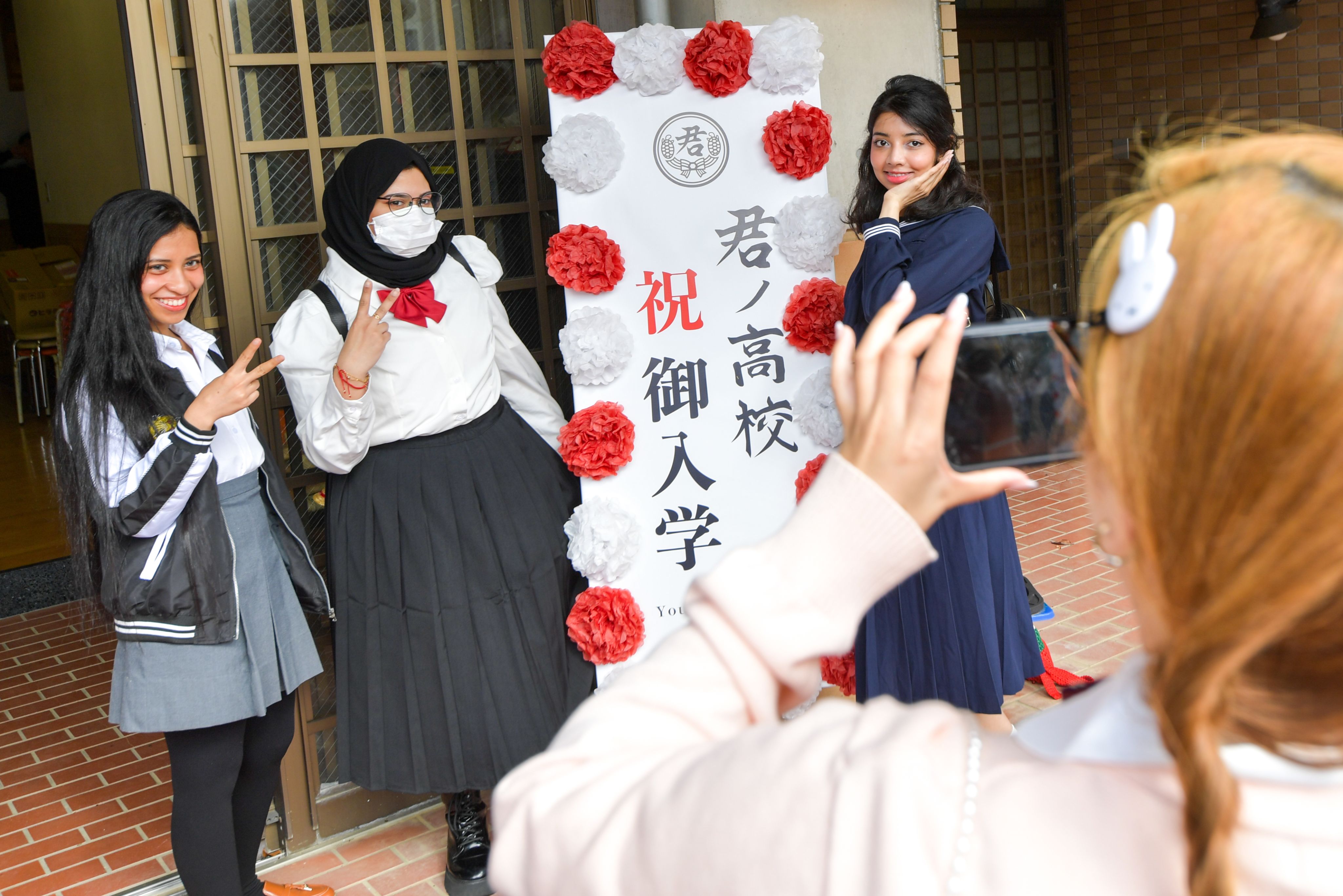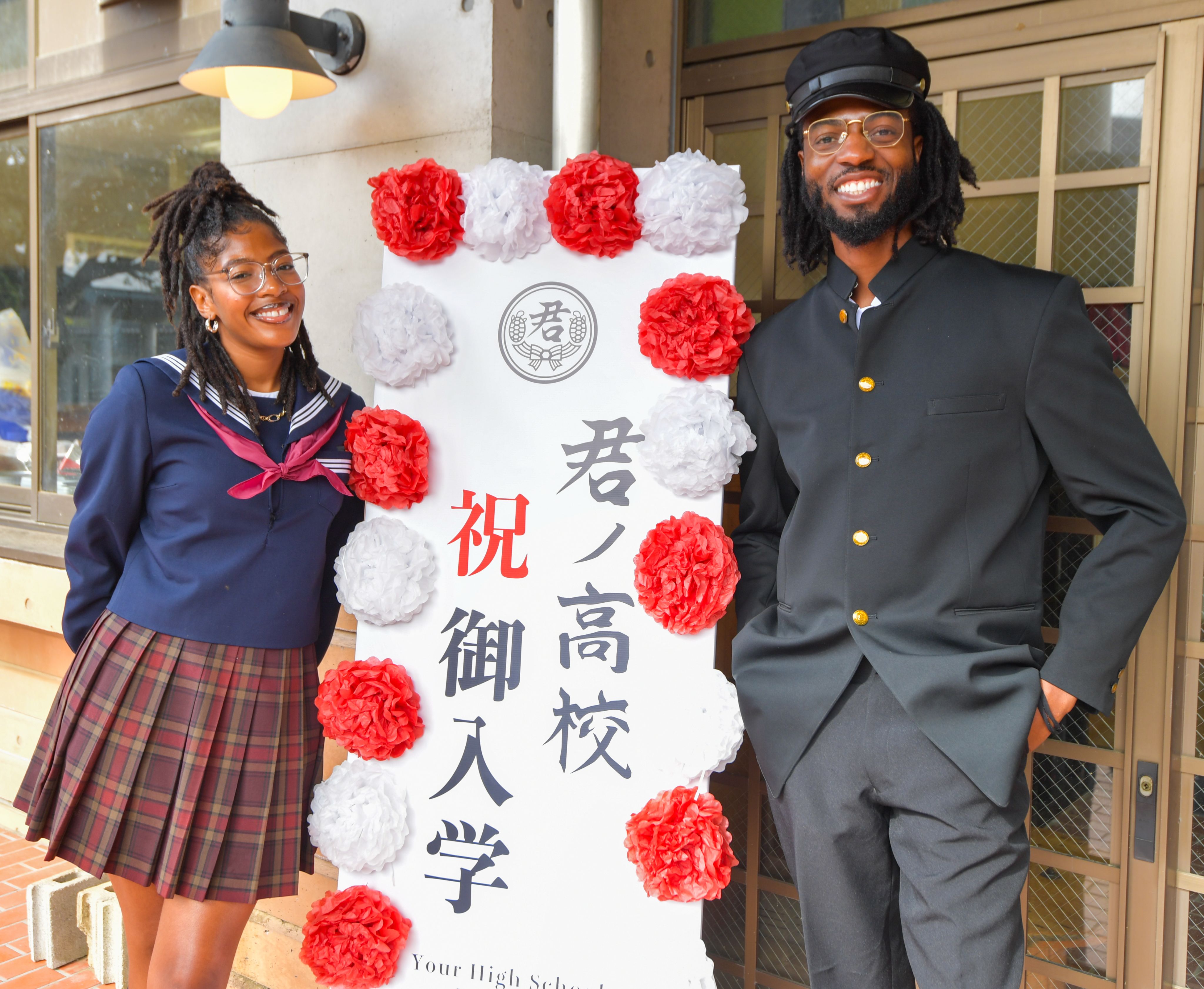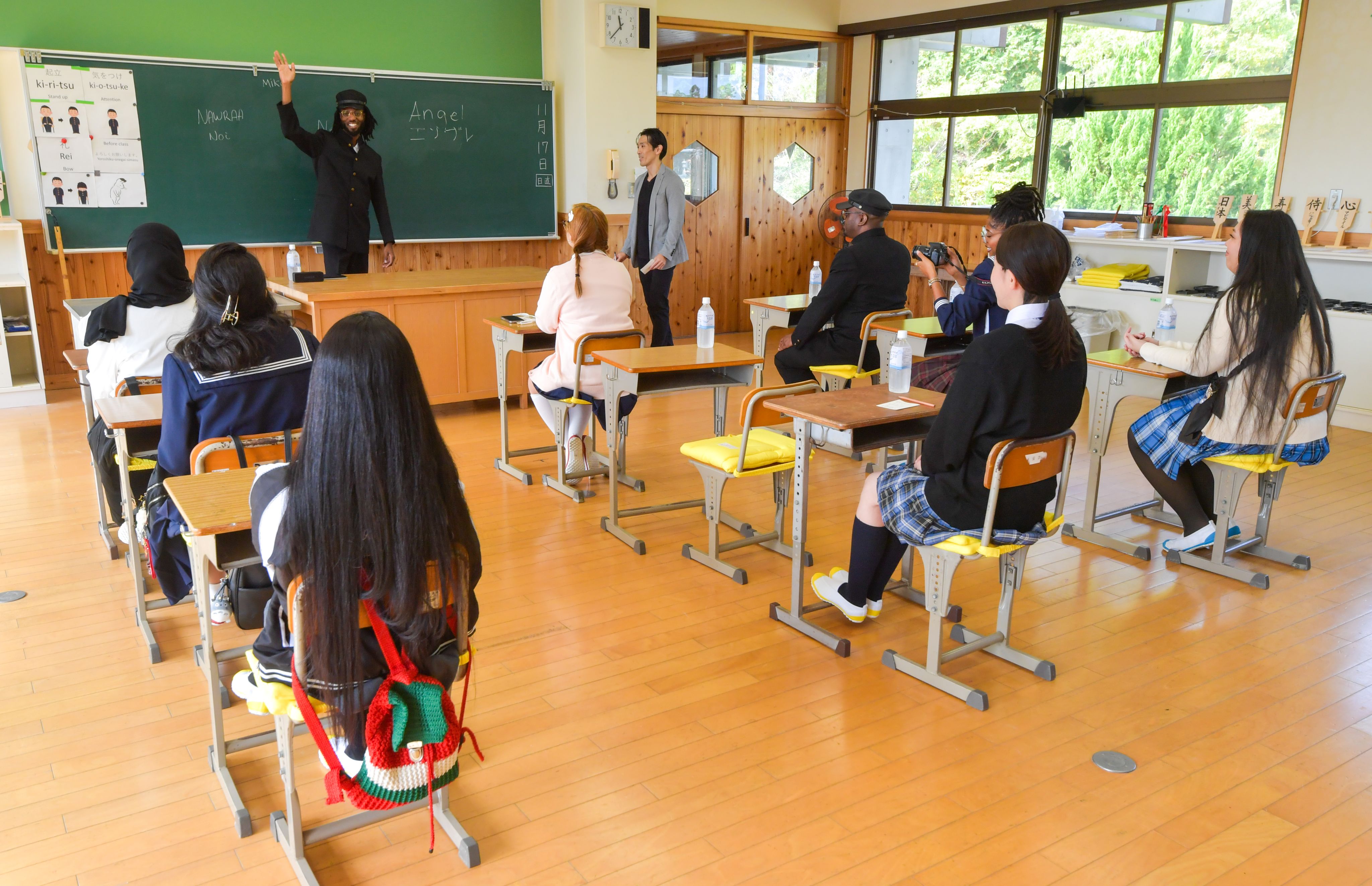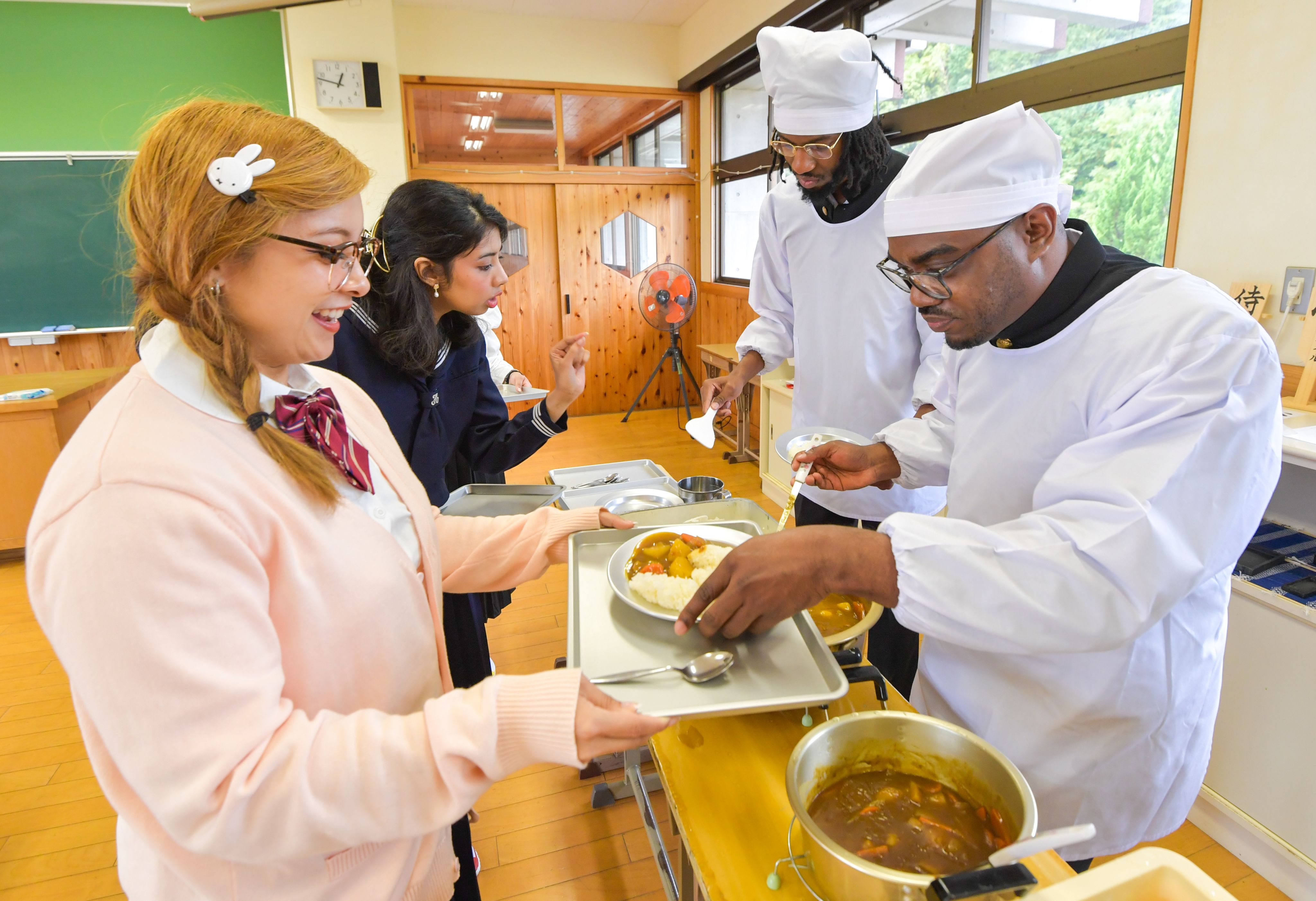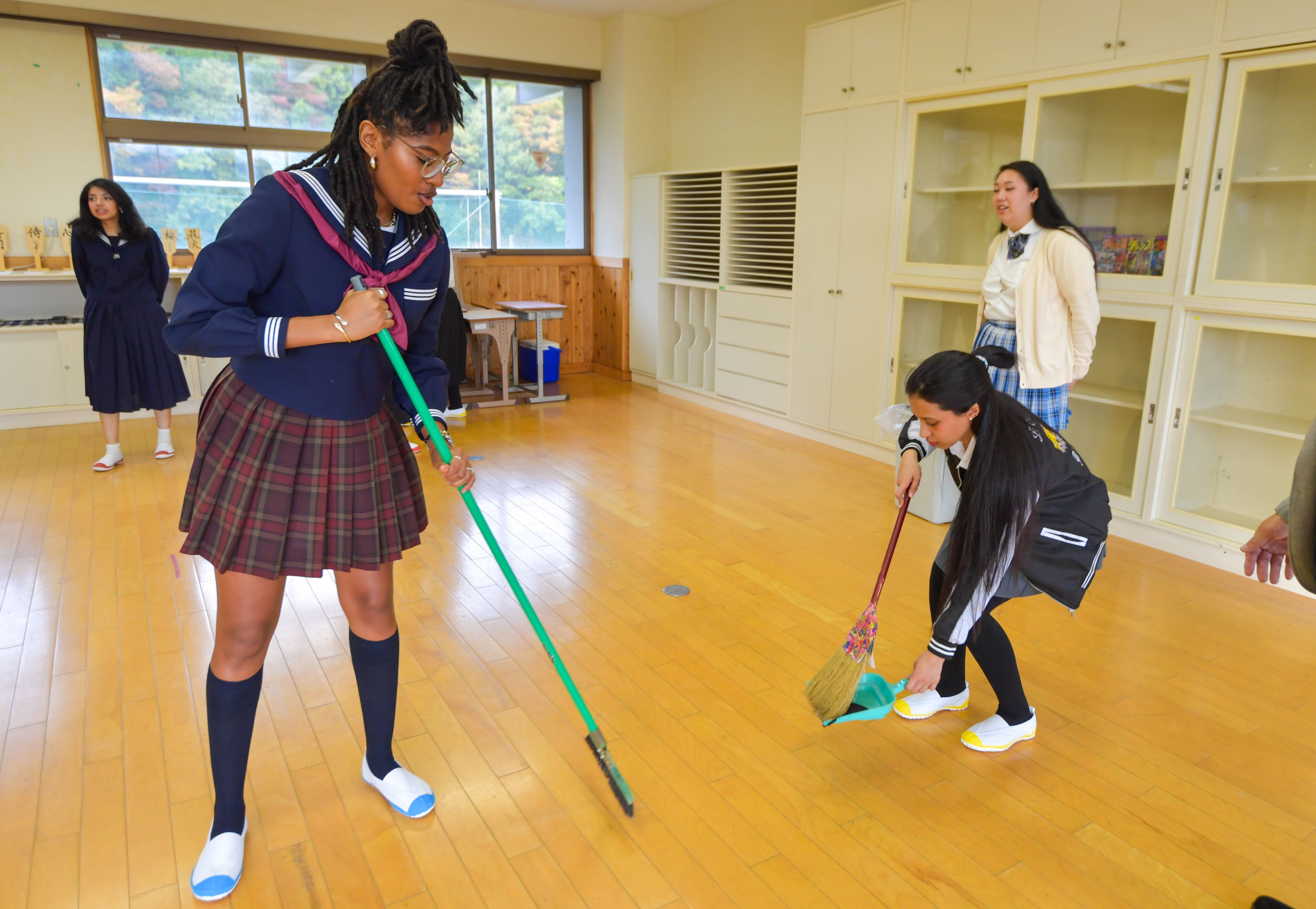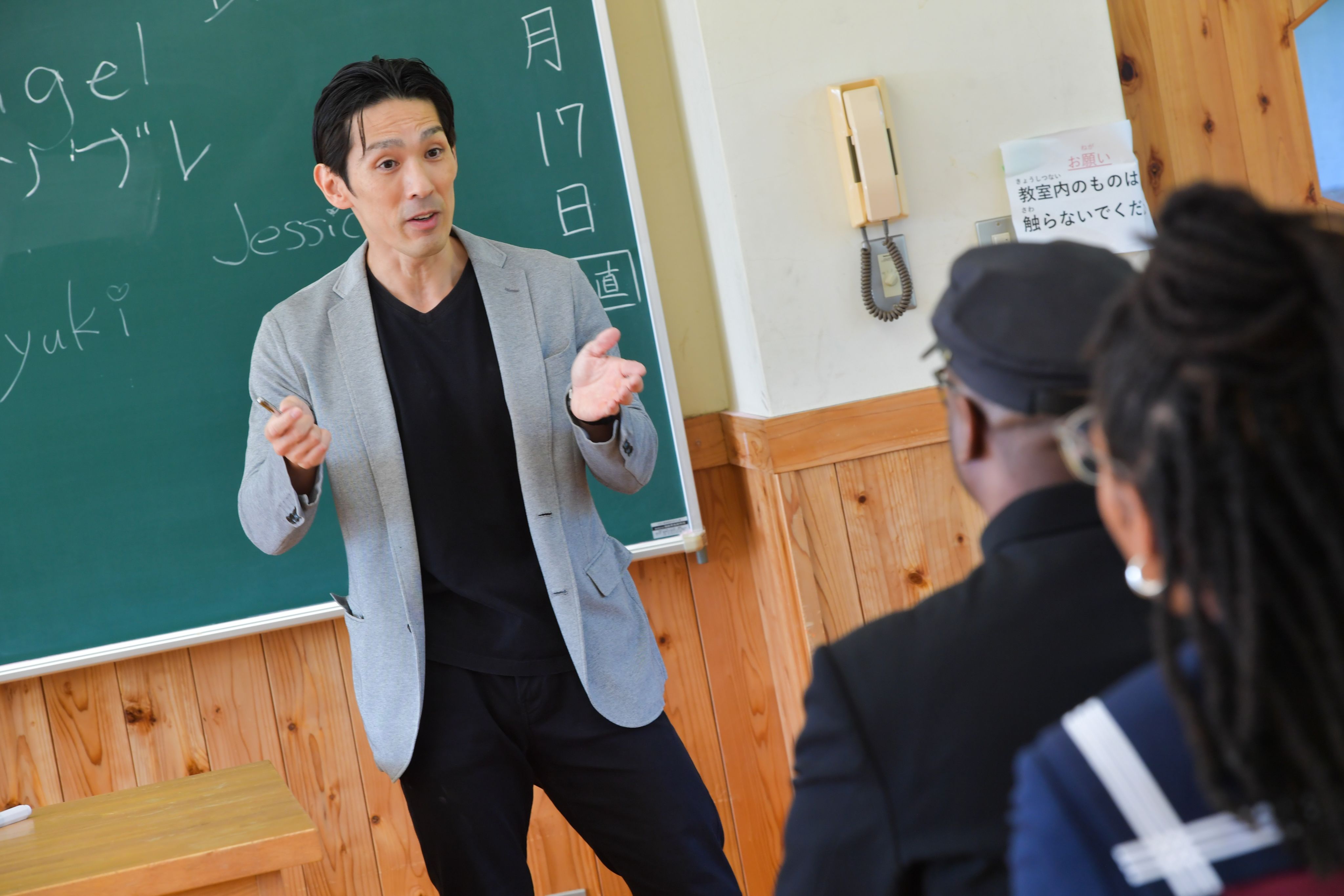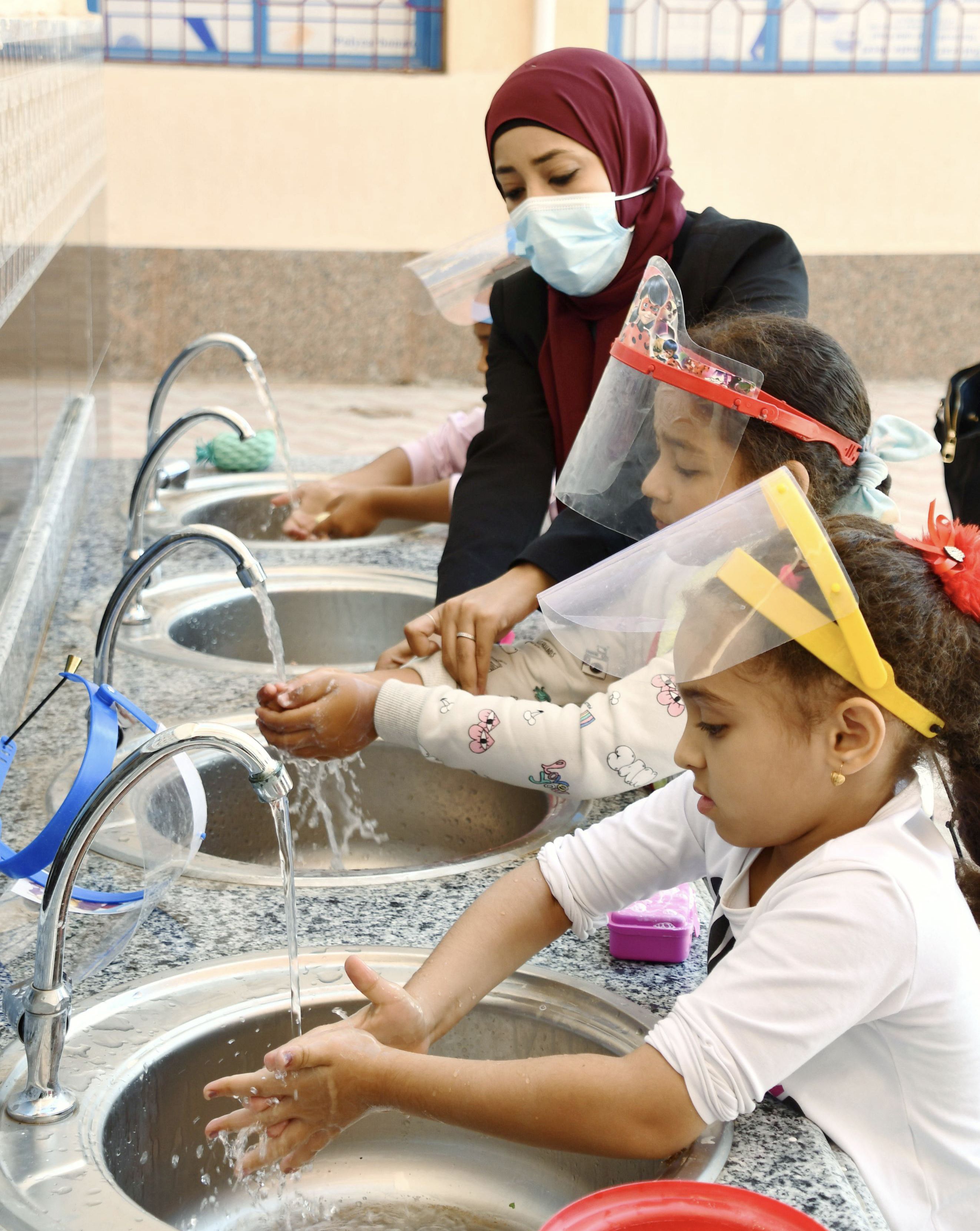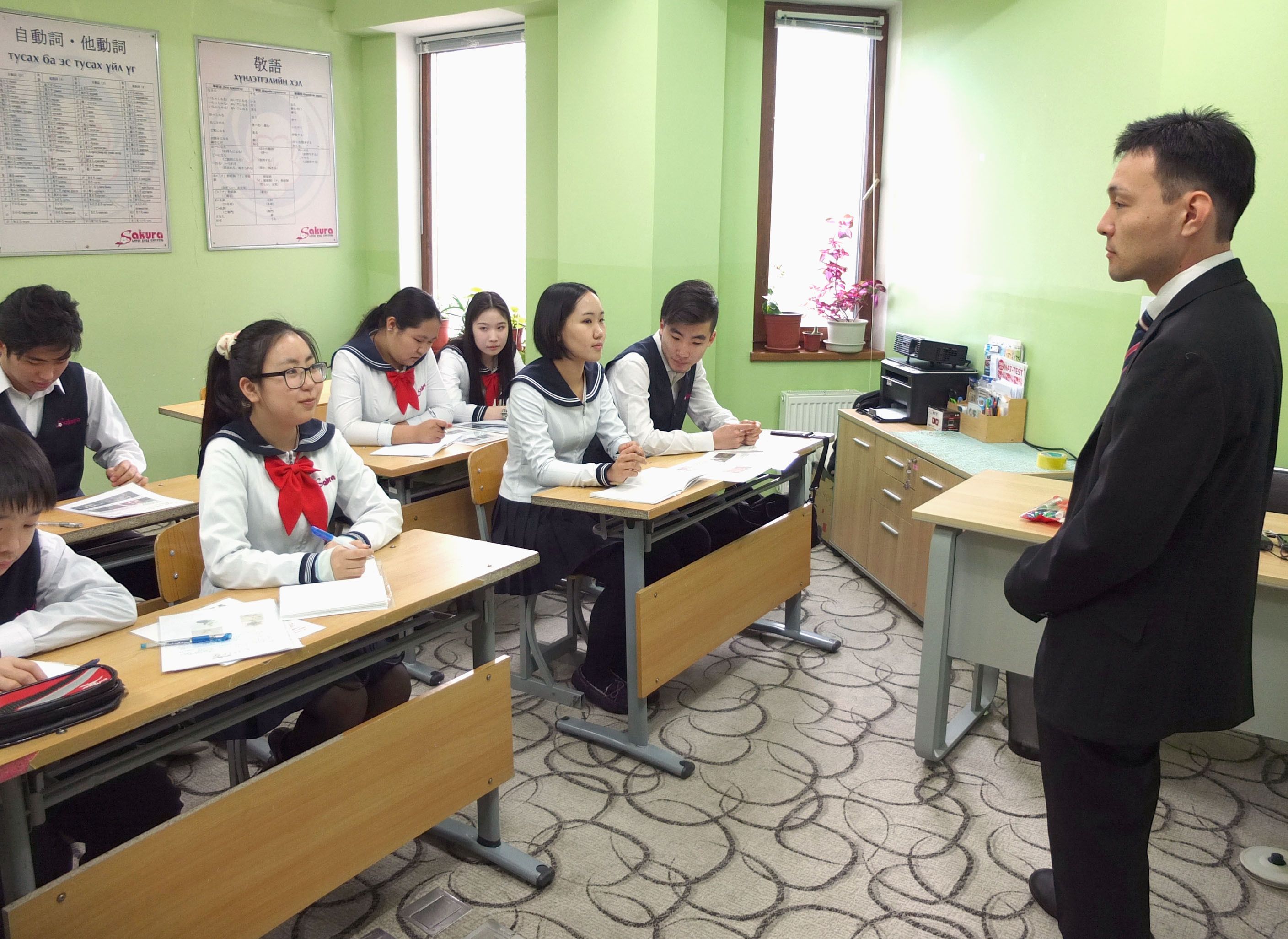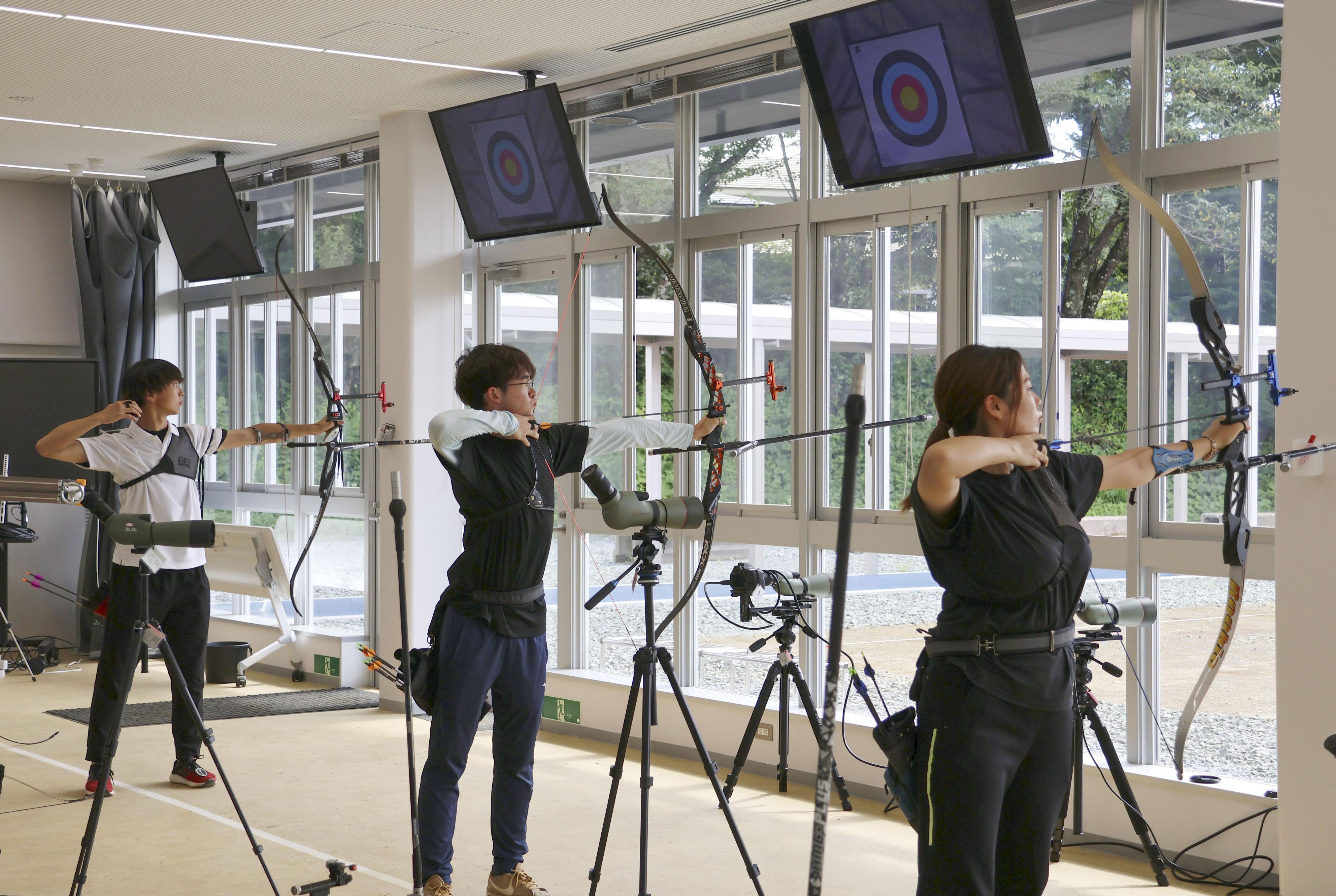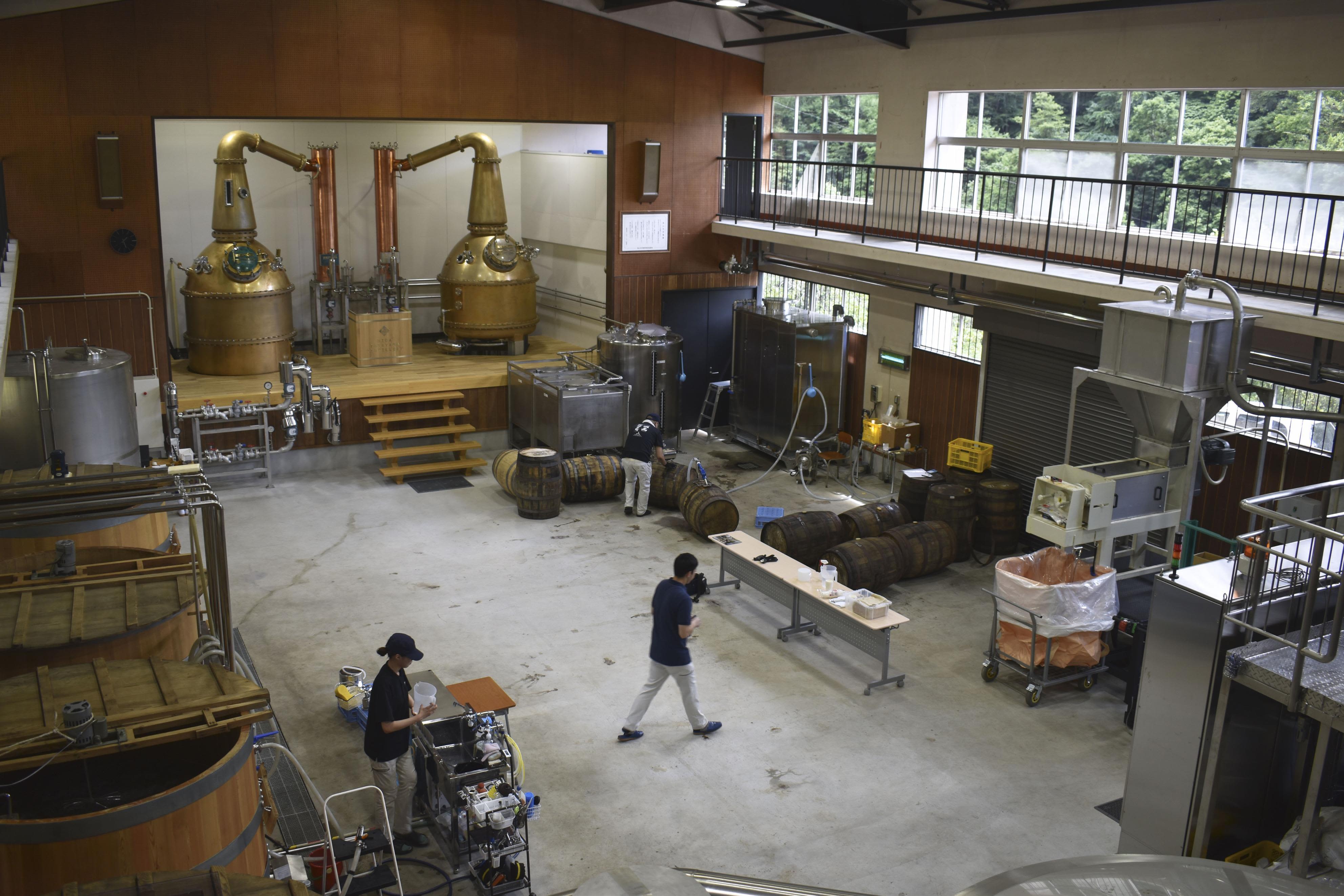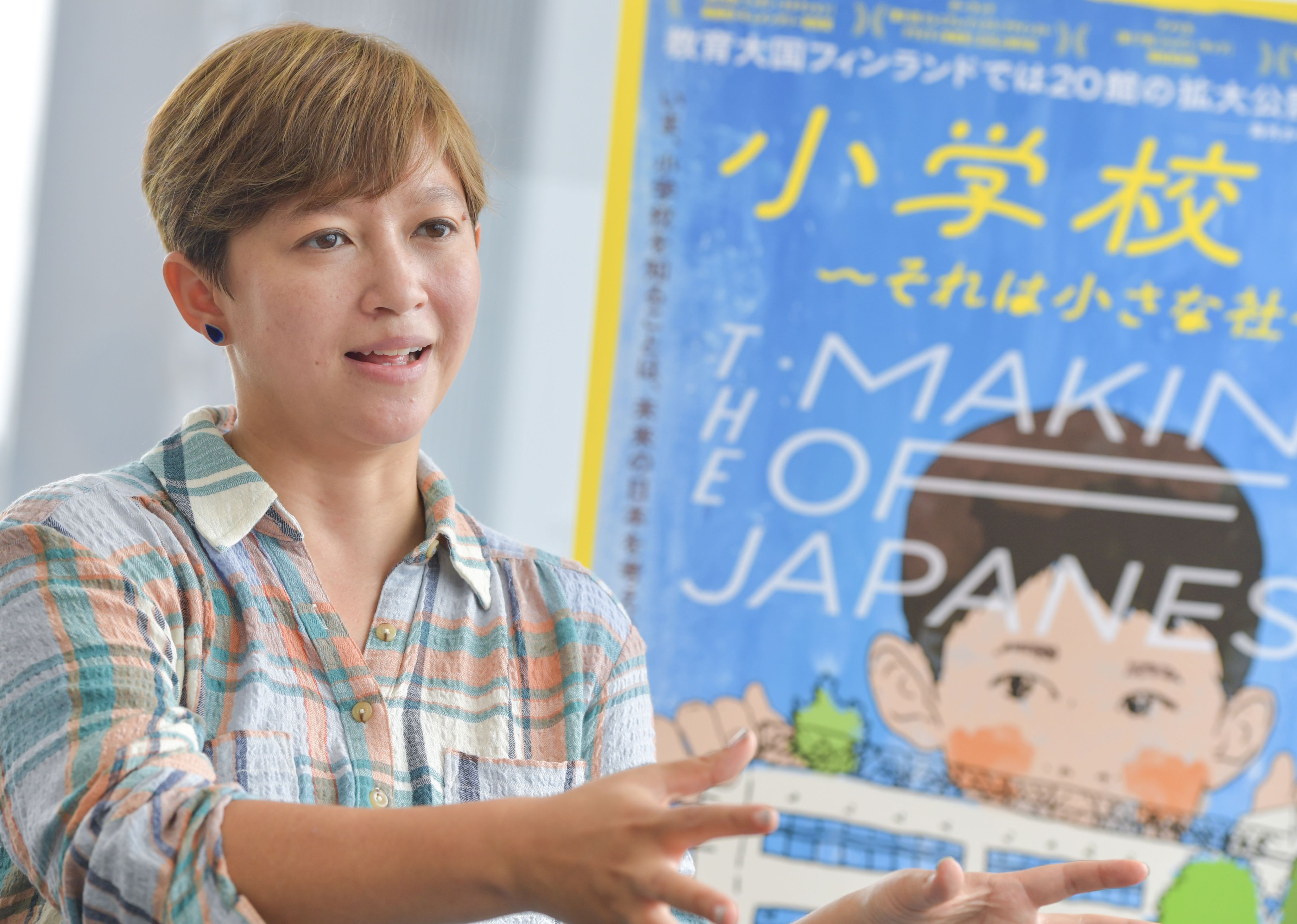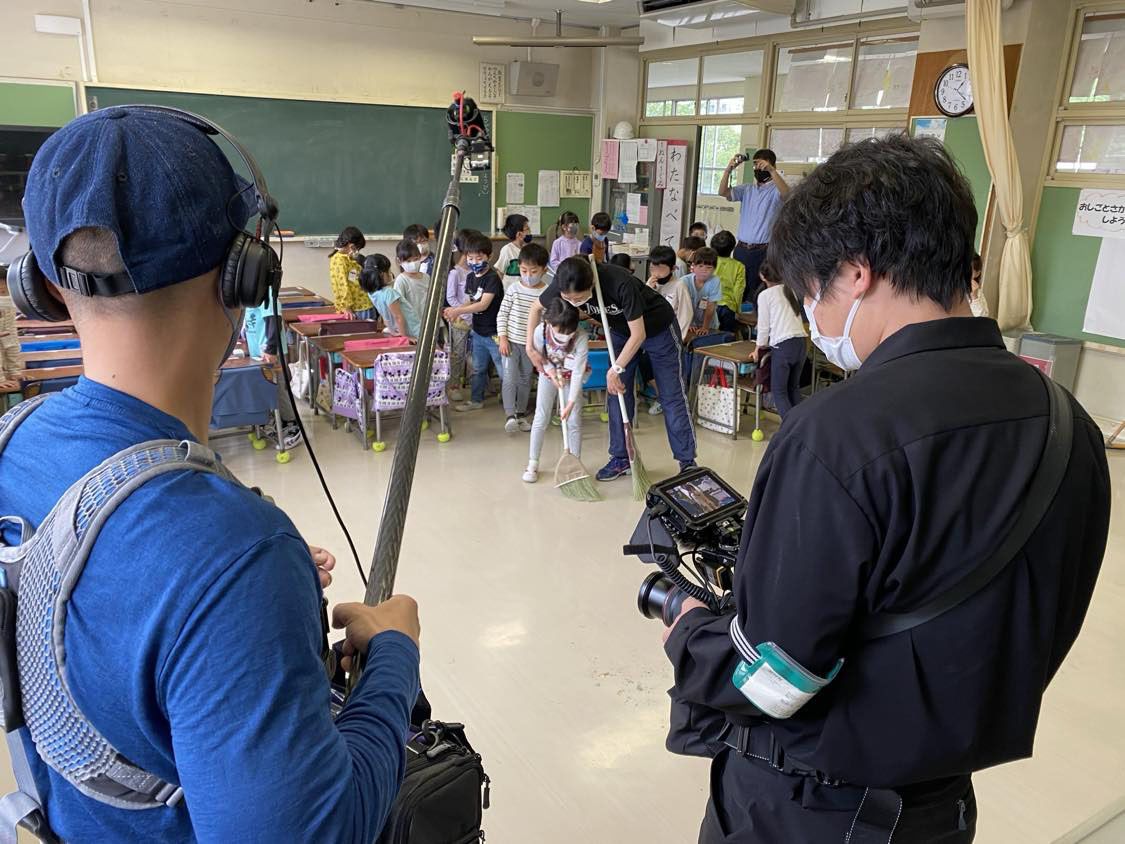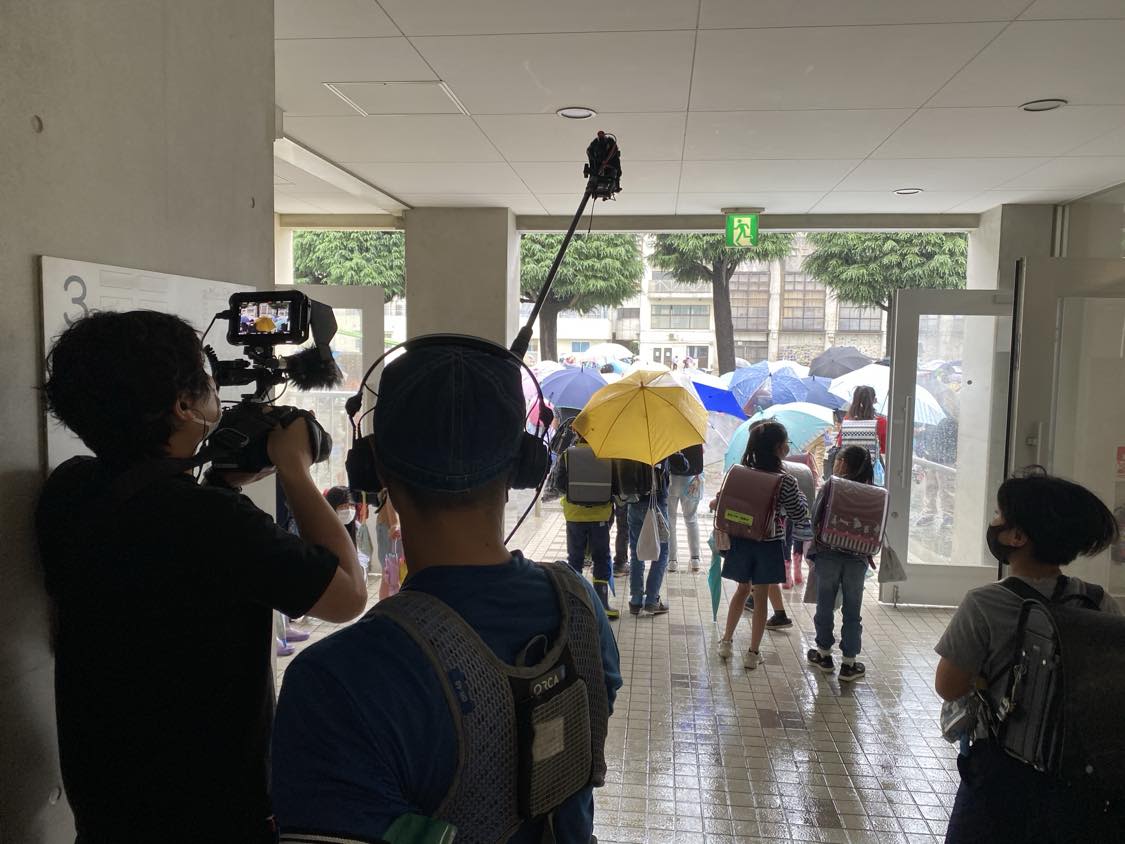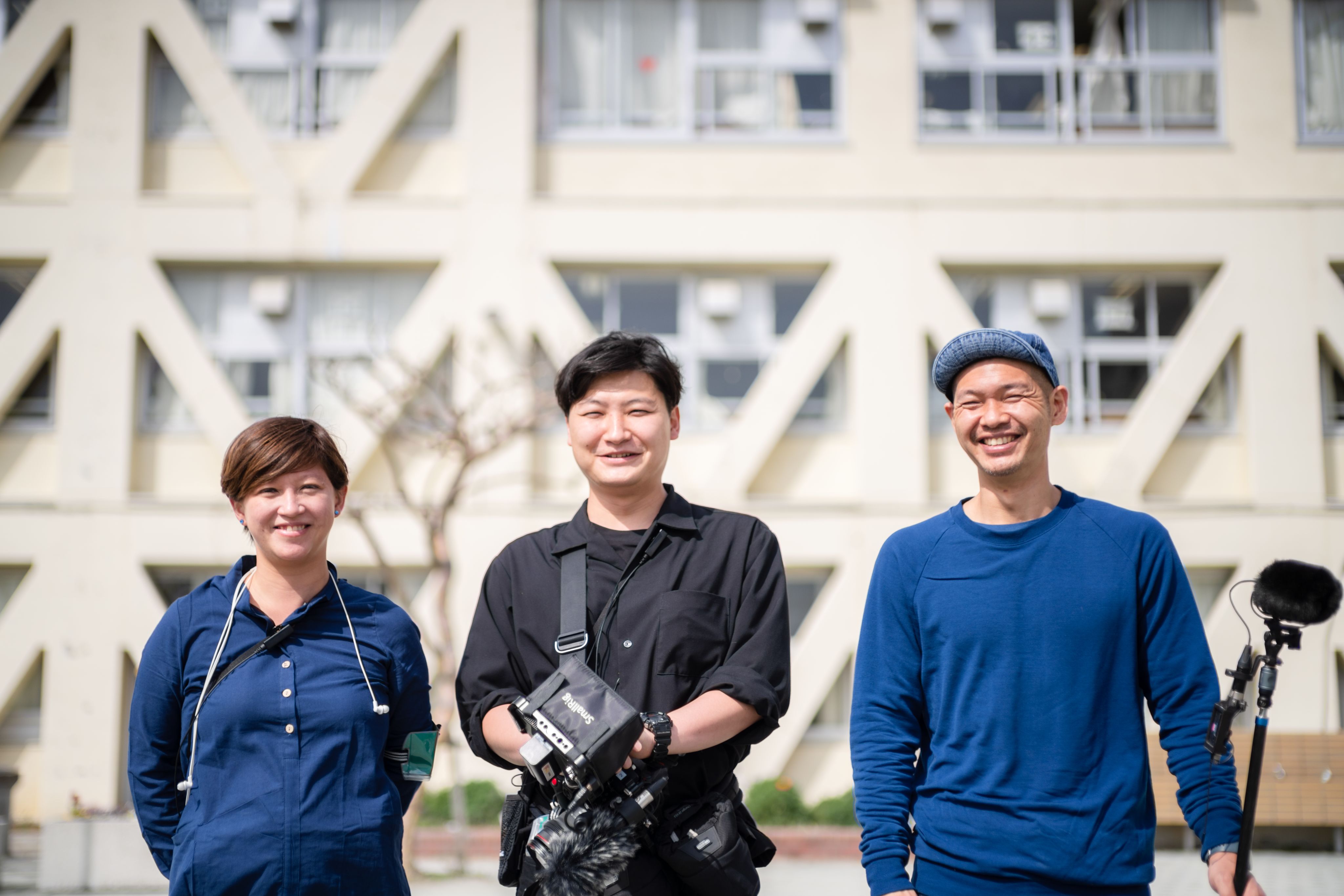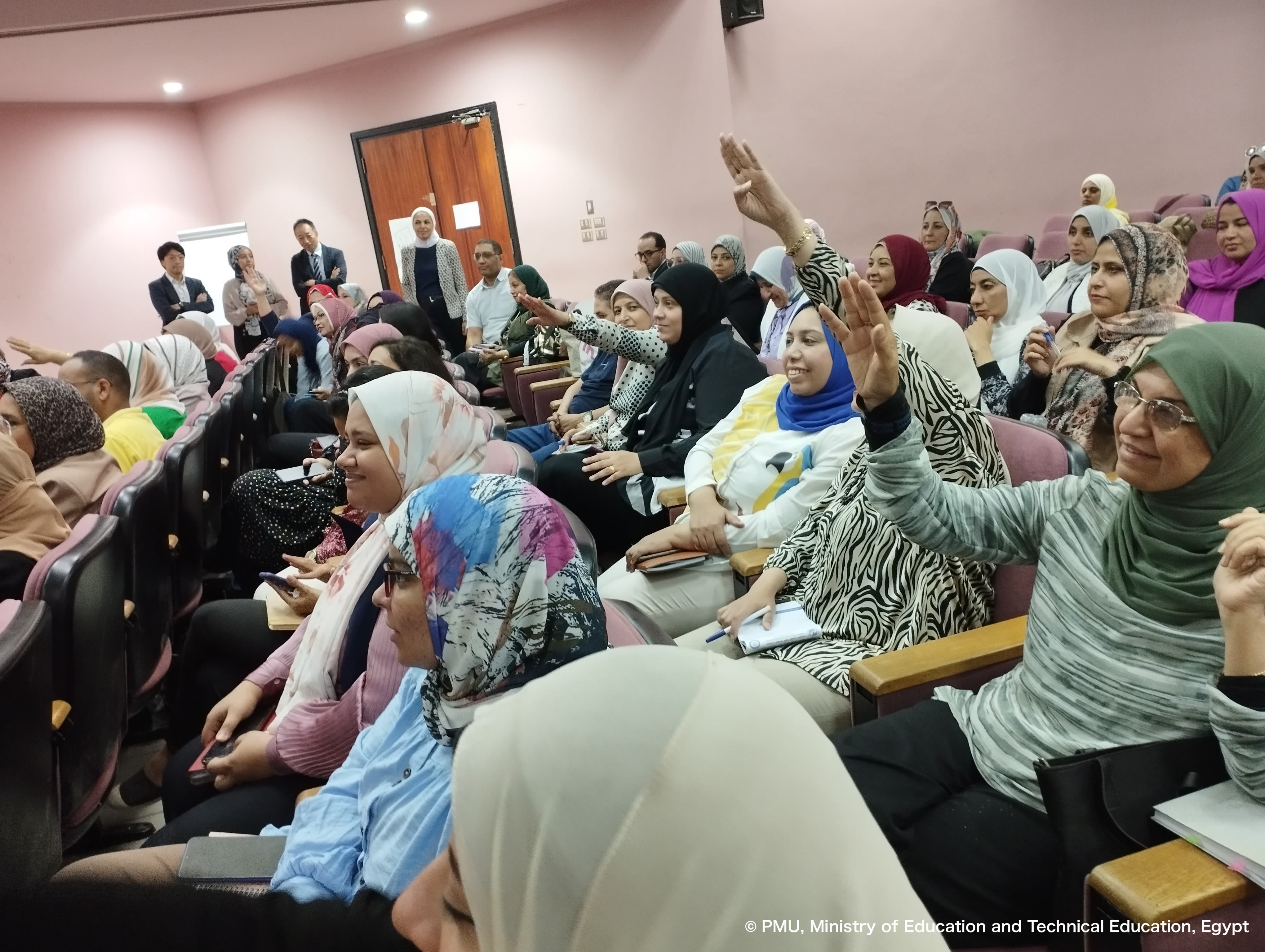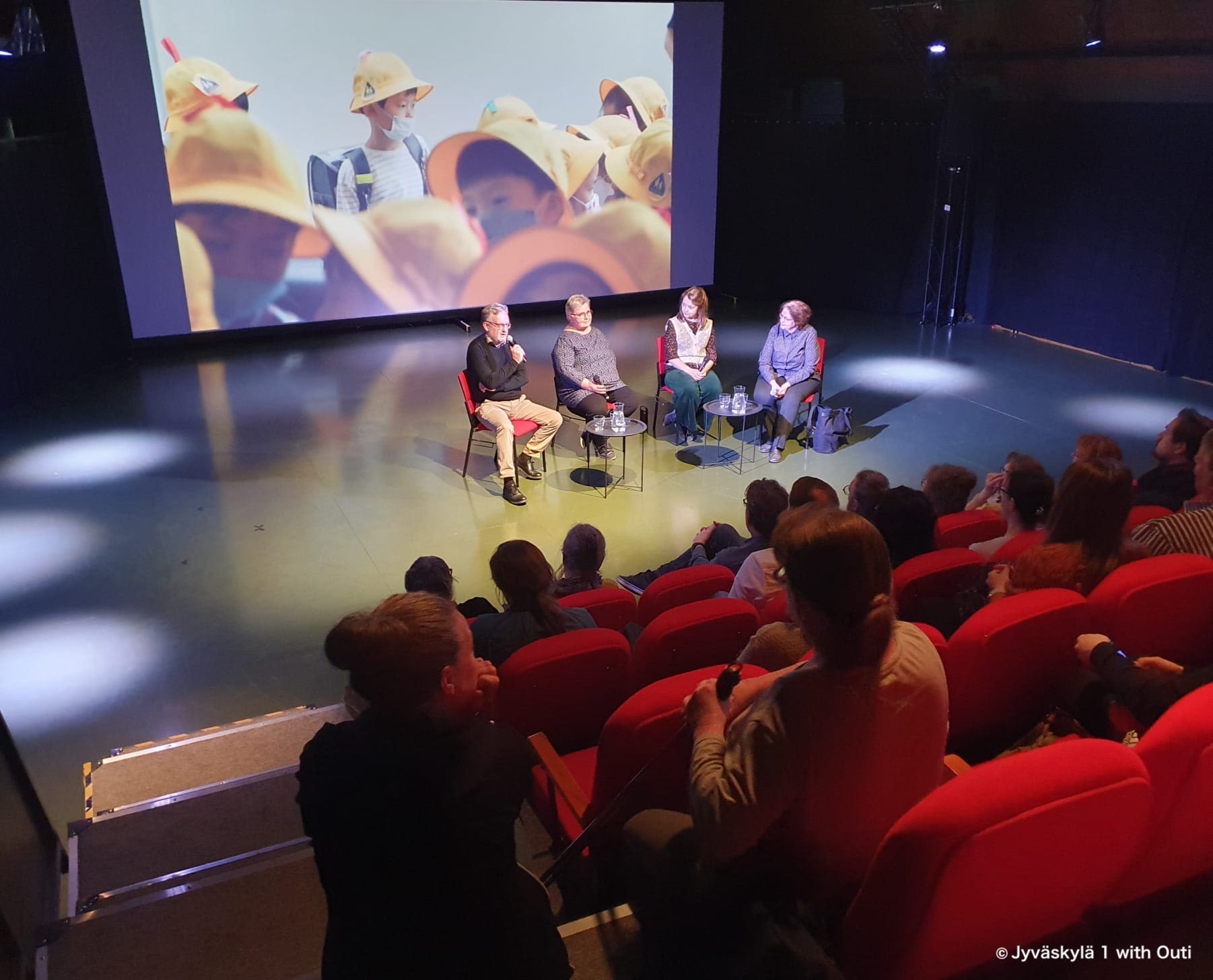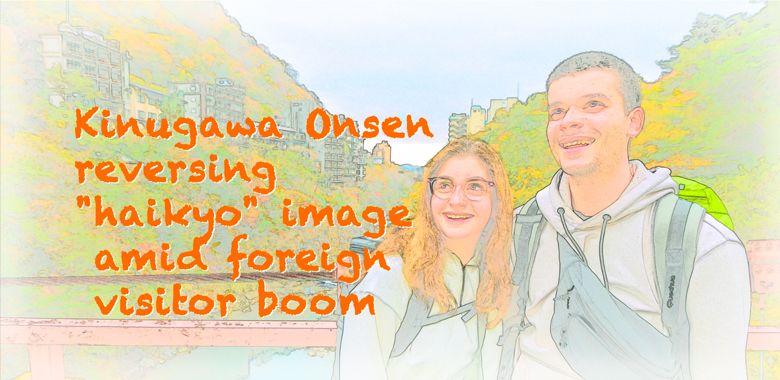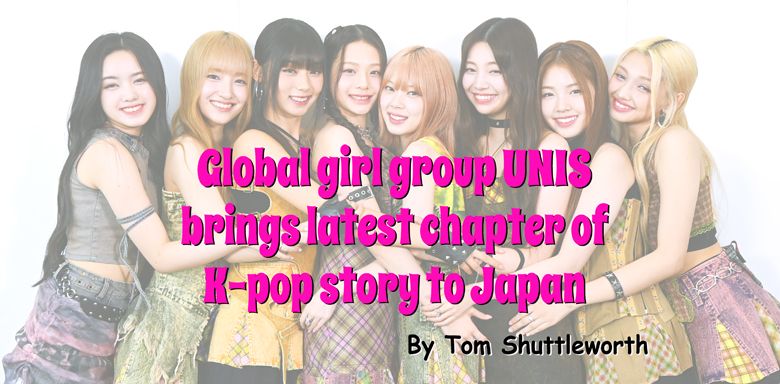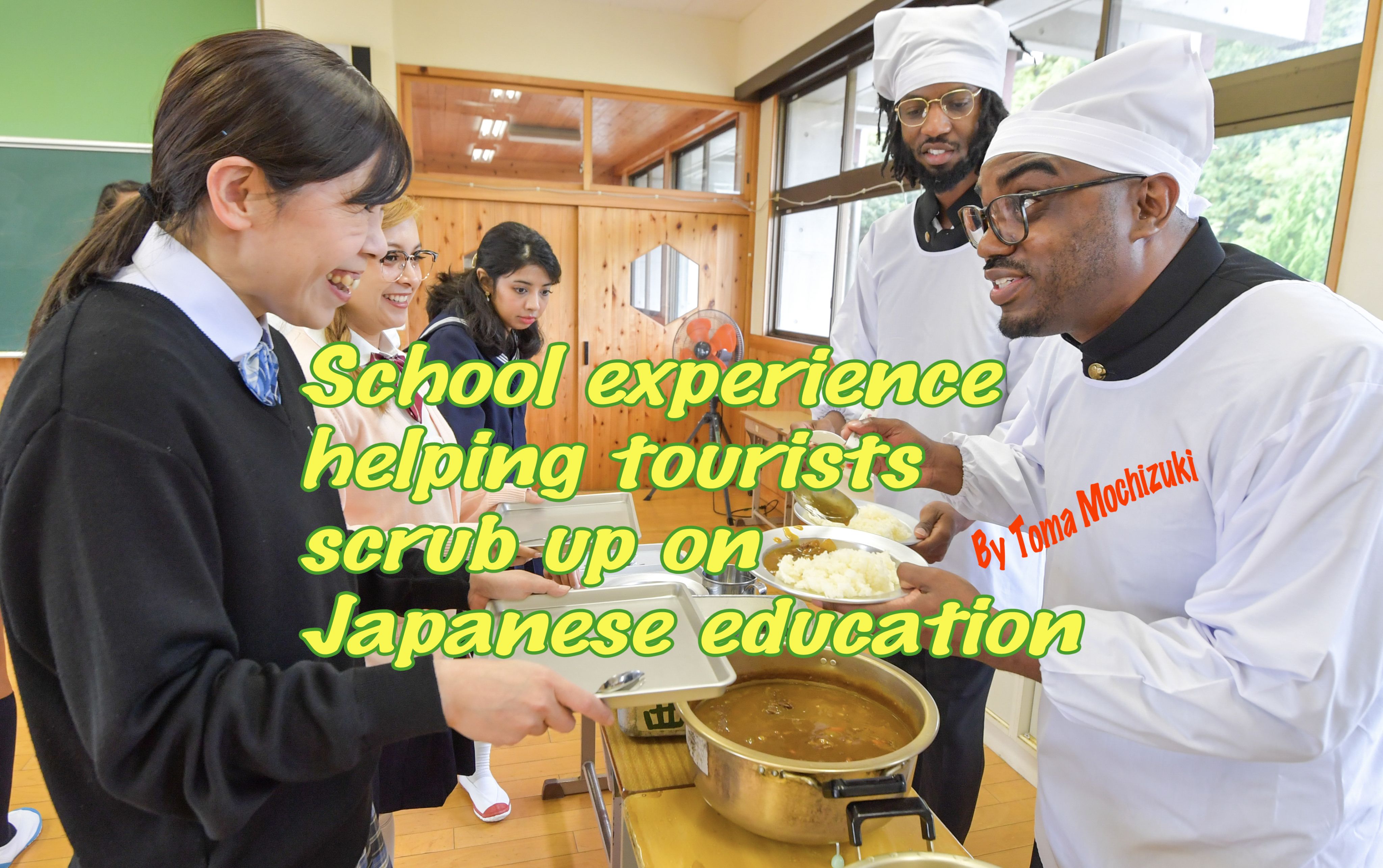

Asking students to clean their classrooms might seem unusual to some, but in Japan it is an unquestioned part of school life and a practice that embodies an education system that is increasingly viewed globally as one that promotes responsibility and collaboration.
Elements of the country's school system, viewed as a microcosm of society and a building block of Japanese identity, can be experienced at a once abandoned junior high school in Kimitsu, Chiba Prefecture, where uniform-clad foreigners live a day in the life of a Japanese high school student.
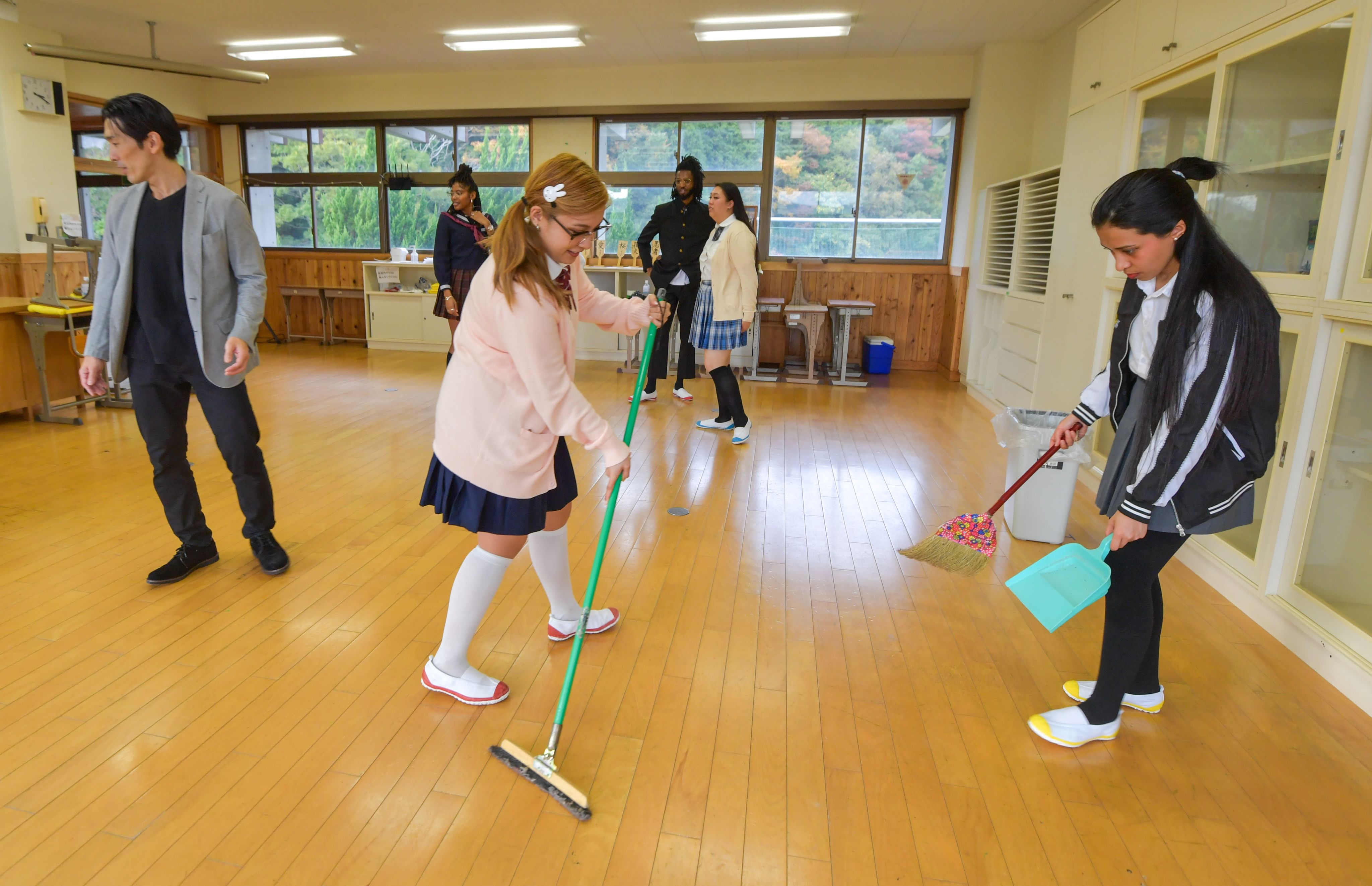

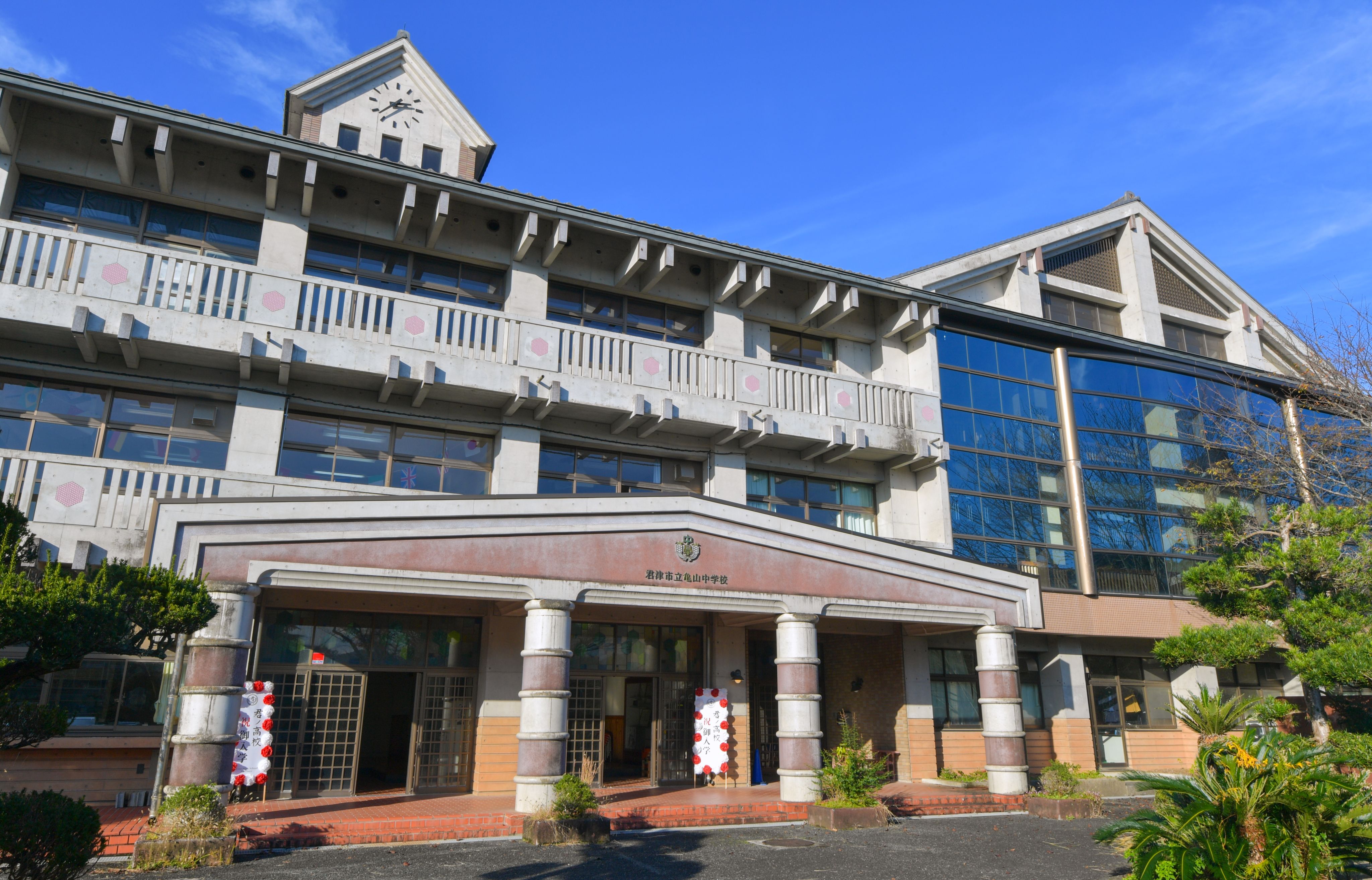
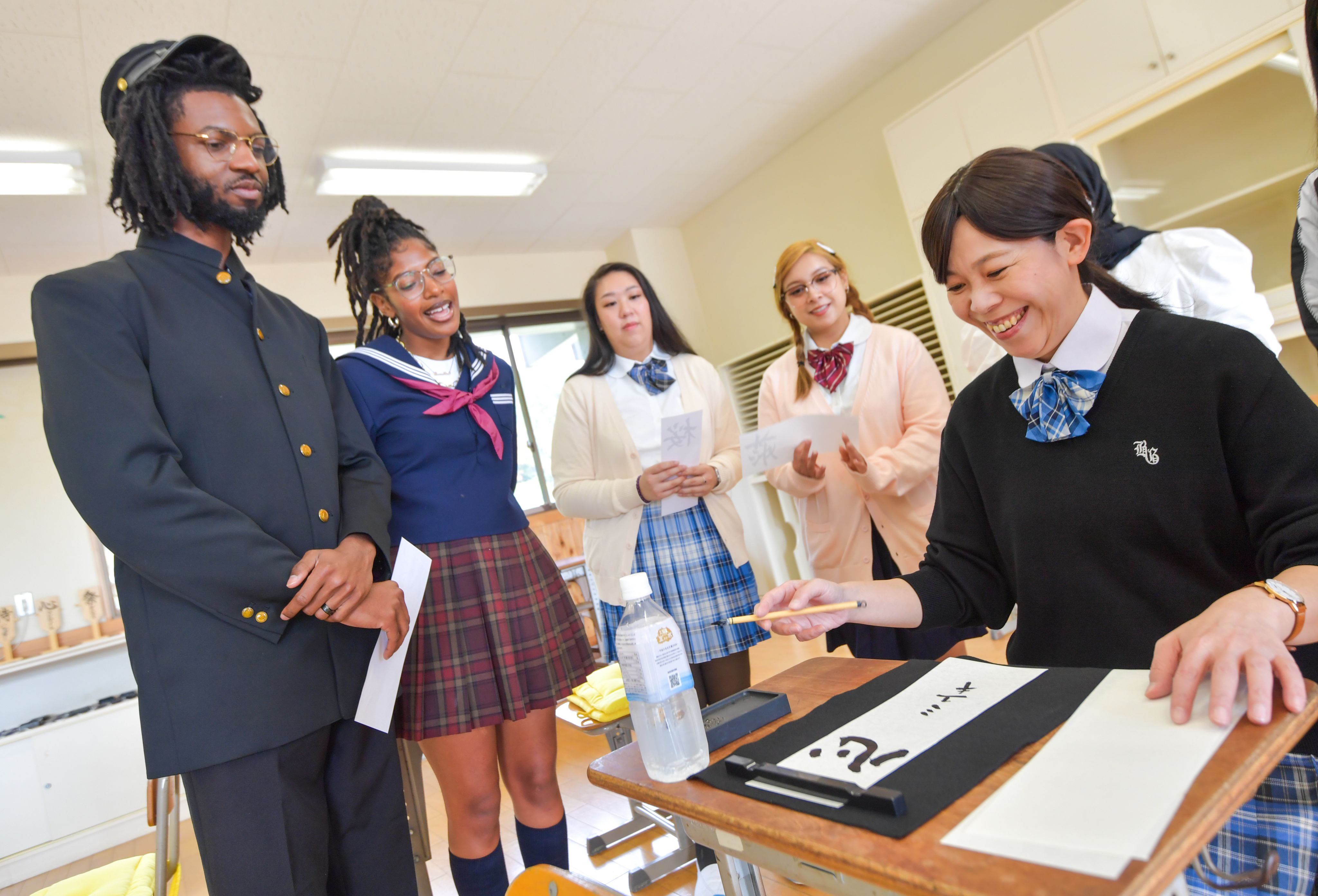
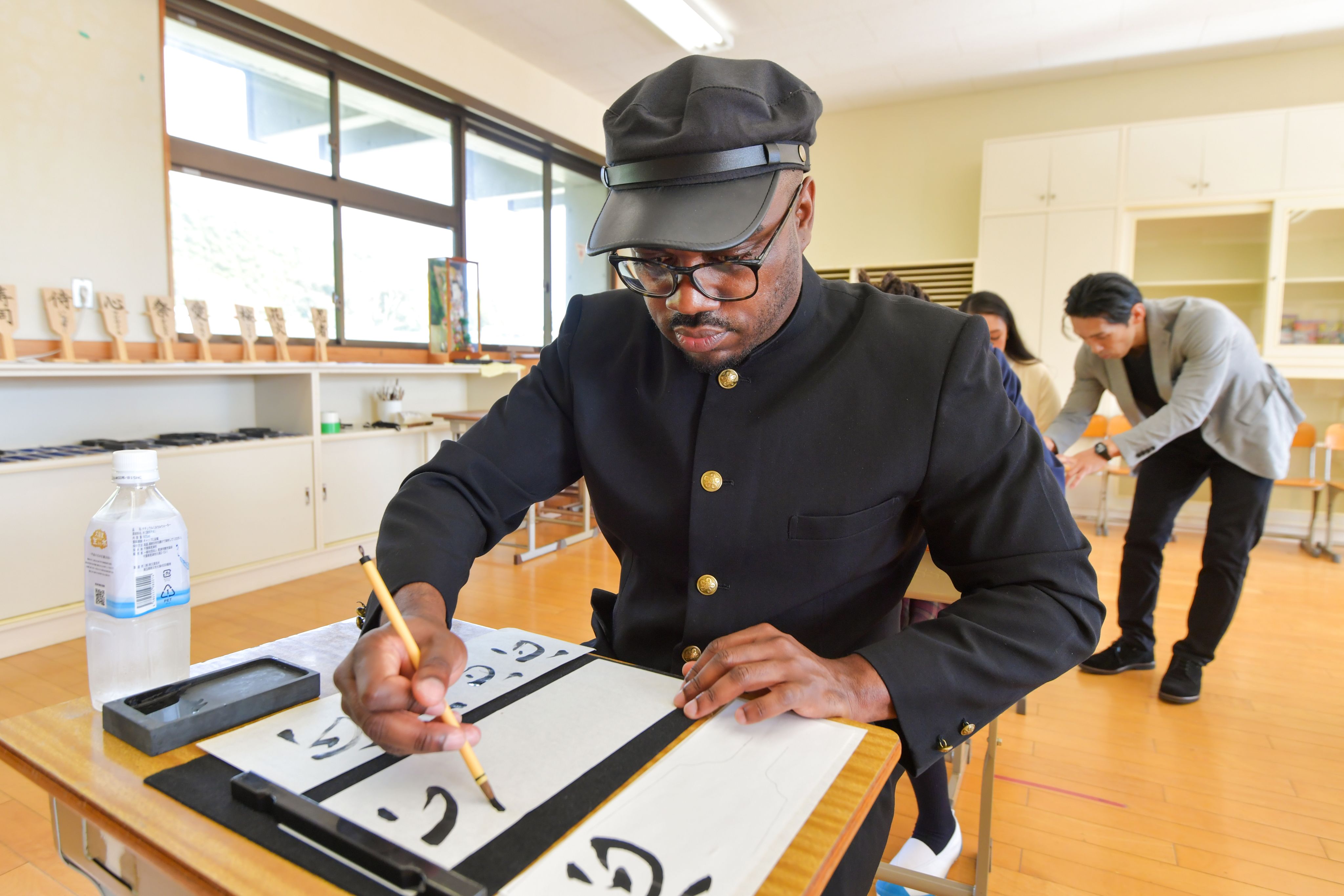
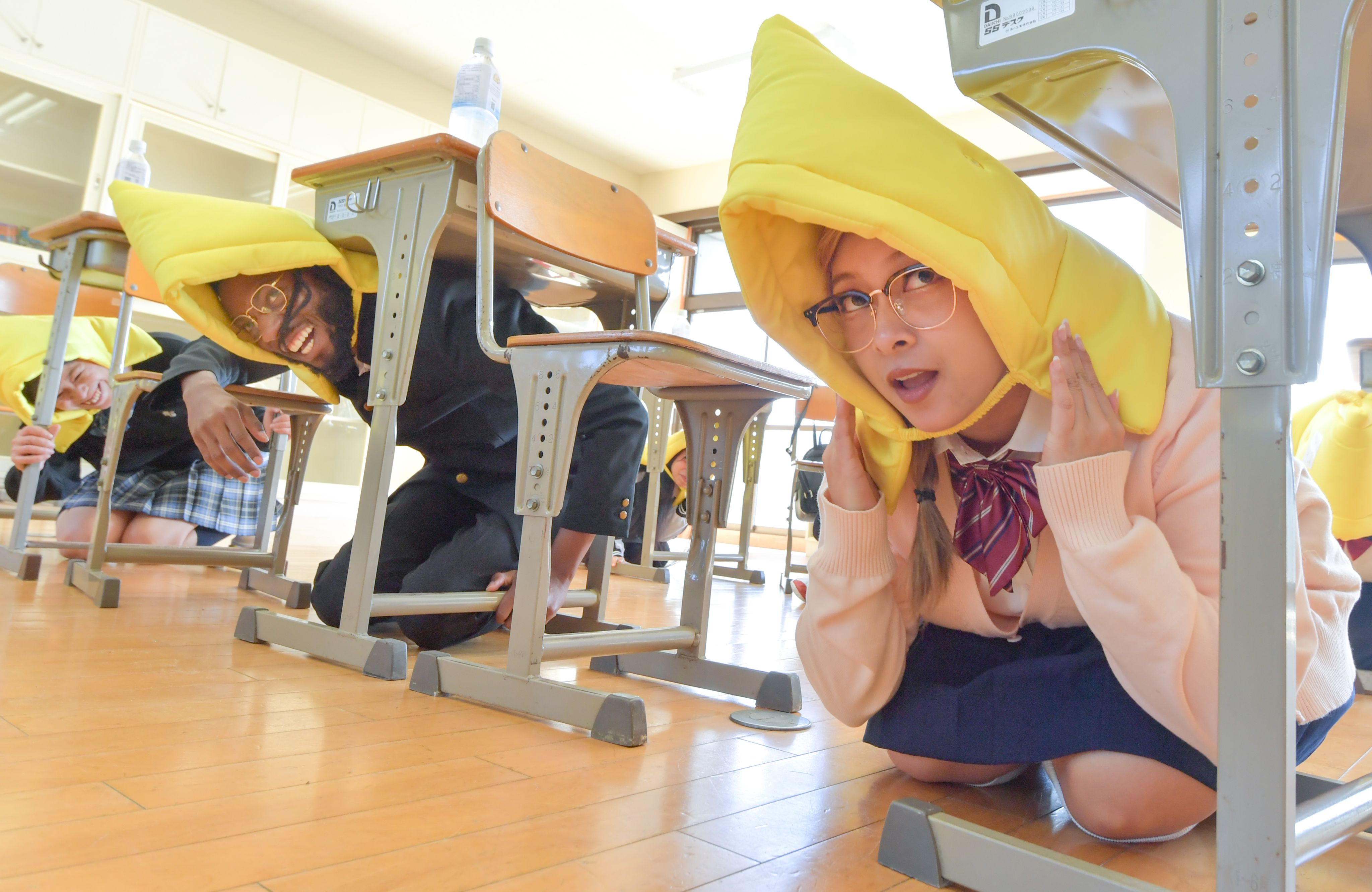
On a balmy day in mid-November, eight adults from the United States and Saudi Arabia arrived in the small town near Tokyo to participate in "Kimi no Koko," which translates as "Your High School," to practice calligraphy, take part in earthquake drills and sports day activities, clean their classroom and receive a diploma at the end of the day.
Though there are critiques that castigate the Japanese education system for failing to deal with bullying and for having an aversion to independent thinking, Takaaki Yoneji, who heads the operator Undokaiya Co., believes Japanese schools are "a place that cultivate social skills, humanity and cooperation."
"Many people who come to the experience know about Japanese schools through anime or manga, although there have recently been some who are simply interested in the differences between their culture and that of Japan," he said.
The "edutainment" service -- which gives visitors a peek into elements of Japanese society such as collective responsibility and conformity, orderliness and politeness -- runs at the former Kameyama junior high school, which closed in March 2020 and is rented to Undokaiya by the municipality.
The project began in November 2023, and the company now offers the experience around three to four times a month in English. Over 100 people have since taken part.
The pseudo-students decide who are the "nicchoku," or the on-duty leaders who greet their teacher at the beginning and end of lessons, as well as nominating those to take "kyushoku toban" lunch duty.
"I feel like there is an energy of respect that is not always guaranteed or present in American schools," said Cori Grainger, a recent participant who was visiting Japan from the United States and learned about the experience through TikTok.
At the day's end, the students pushed their desks and chairs to the side of the classroom and grabbed their brooms, taking turns to clean up while discussing their experiences over the past few hours.
"I really appreciated the self-accountability, taking care of your school, cleaning up after yourself. It's not something that I expected, it's not something that I grew up with in American school systems," Grainger added.
Throughout the experience, which costs 35,000 yen ($220) per person, the participants were also taught Japanese phrases and greetings and had a chance to change into traditional yukata. They also immersed themselves in situations performed by actors hired to play the roles of teachers.
Several elements of the Japanese education system demonstrated at Your High School have been actively incorporated by other countries.
Egypt has founded a number of Egyptian-Japanese schools, known as EJS, which operate under the philosophy of "tokkatsu," a Japanese phrase shortened from "tokubetsu katsudo," or special activities.
Students wash their hands at an Egyptian-Japanese school in Sharm el-Sheikh, Egypt, in November 2020. (Kyodo)
Students wash their hands at an Egyptian-Japanese school in Sharm el-Sheikh, Egypt, in November 2020. (Kyodo)
Thailand and Mongolia have also opened schools that have integrated some features in the hope of nurturing more cooperation and discipline among students.
Students in uniform sit in front of their Japanese teacher at "Sakura Gakko,” a school that incorporates Japanese-style discipline and culture, outside of Ulaanbaatar, Mongolia, in April 2016.
Students in uniform sit in front of their Japanese teacher at "Sakura Gakko,” a school that incorporates Japanese-style discipline and culture, outside of Ulaanbaatar, Mongolia, in April 2016.
While the participants at Your High School only experience a sliver of what students in Japan do, its operator Undokaiya has endeavored to create an experience that is both fun for participants and revitalizing for the local area.
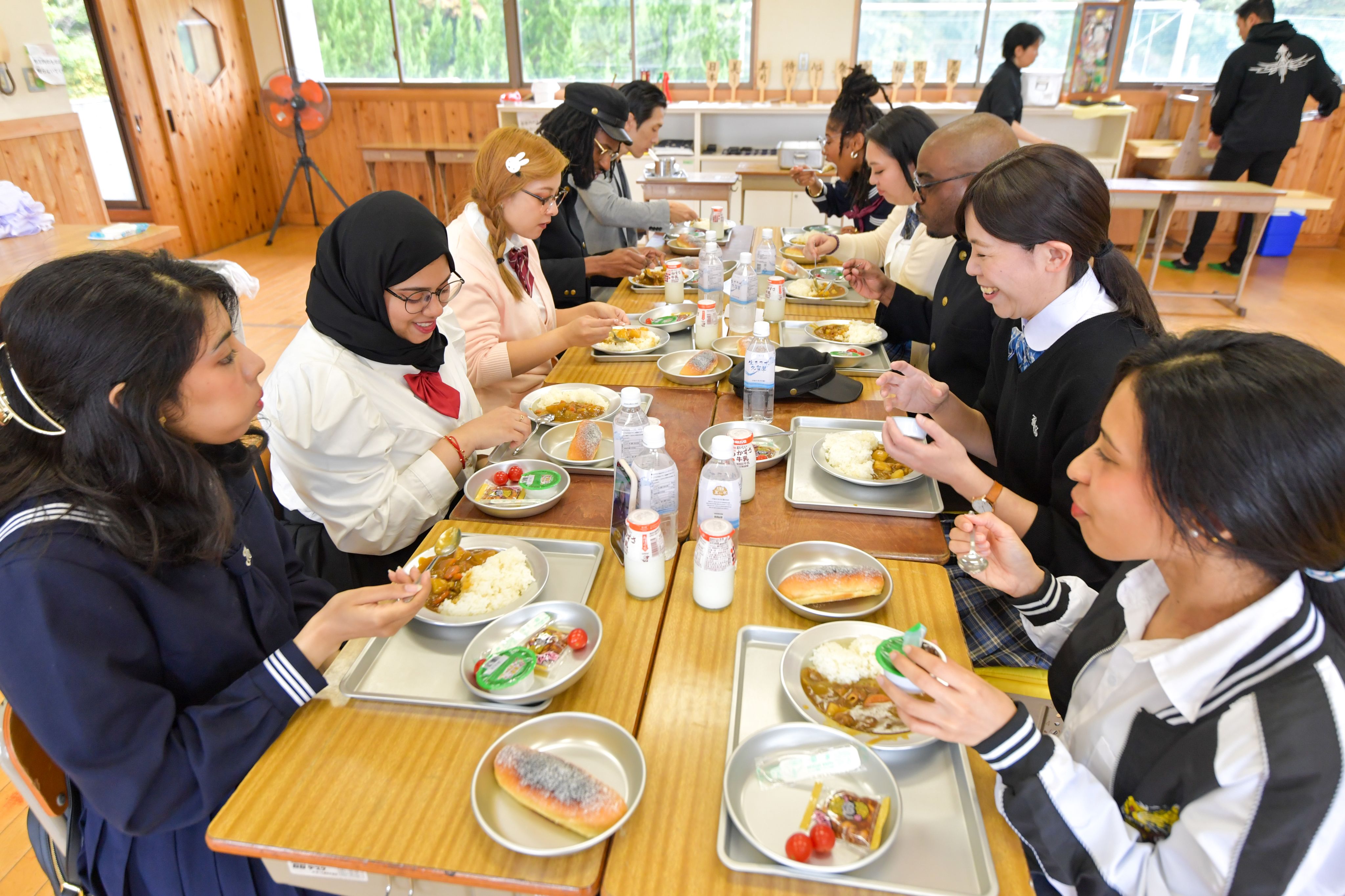
The company, which specializes in organizing sports days, or "undokai," decided to branch out to repurpose the growing number of abandoned schools across the country. It operates others as campsites.
An archery range that used to be an elementary school in Iwate, Japan, in August 2023. (Kyodo)
An archery range that used to be an elementary school in Iwate, Japan, in August 2023. (Kyodo)
Many schools in Japan have been shuttering due to depopulation and the low birthrate, with around 8,580 no longer being used as schools as of May 2021, according to the latest data available by the Ministry of Education, Culture, Sports, Science and Technology.
Photo shows the Hida Takayama Distillery, which utilizes a former elementary school to brew whisky, in Gifu, Japan, in August 2023. (Kyodo)
Photo shows the Hida Takayama Distillery, which utilizes a former elementary school to brew whisky, in Gifu, Japan, in August 2023. (Kyodo)
Nearly 75 percent of those have been repurposed in some way, including as offices, campsites and archery ranges. Among companies that have found potential in reutilizing abandoned schools is Ryohin Keikaku Co., owner of the Muji store brand, which renovated a former school and opened an accommodation facility in October.
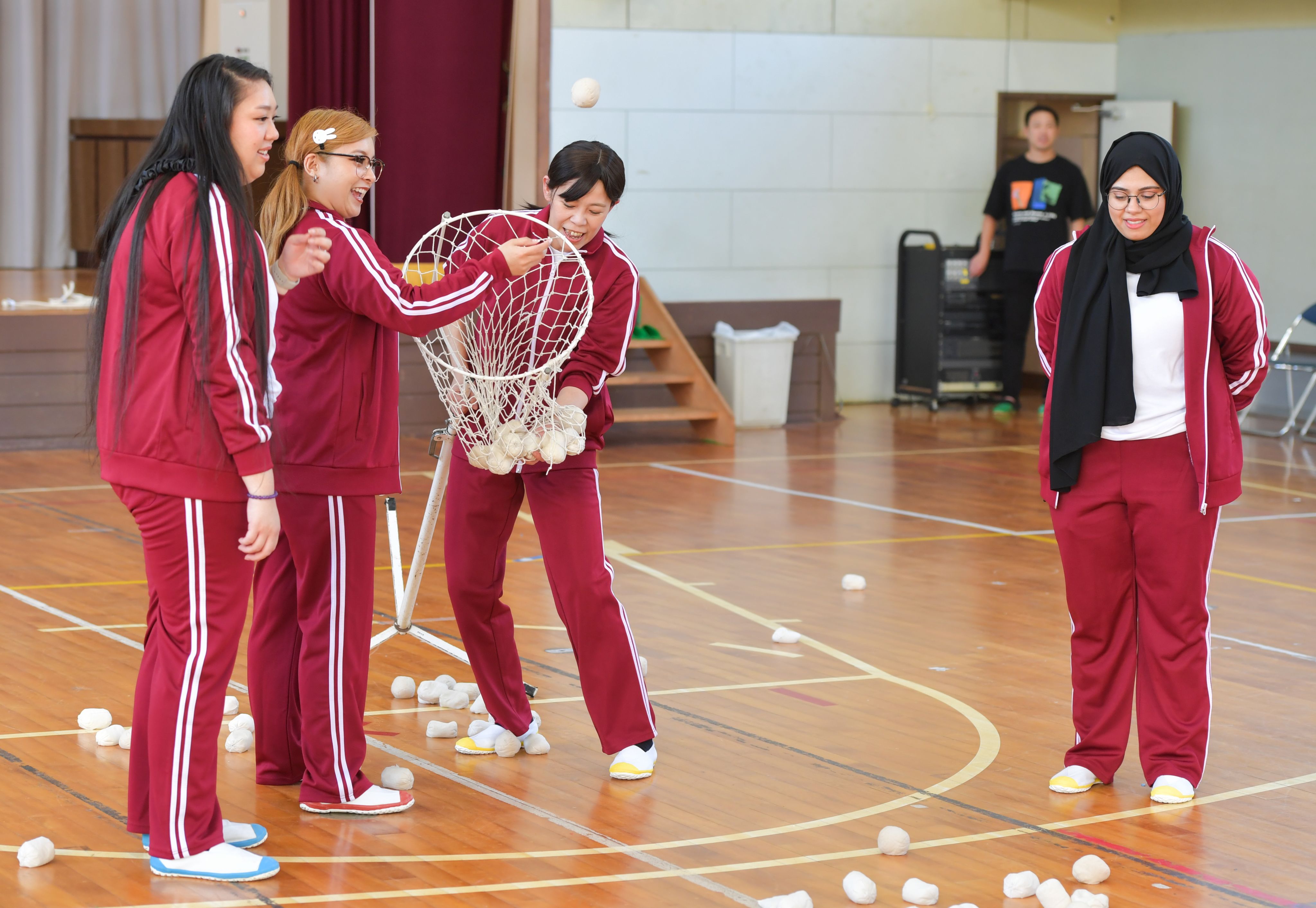
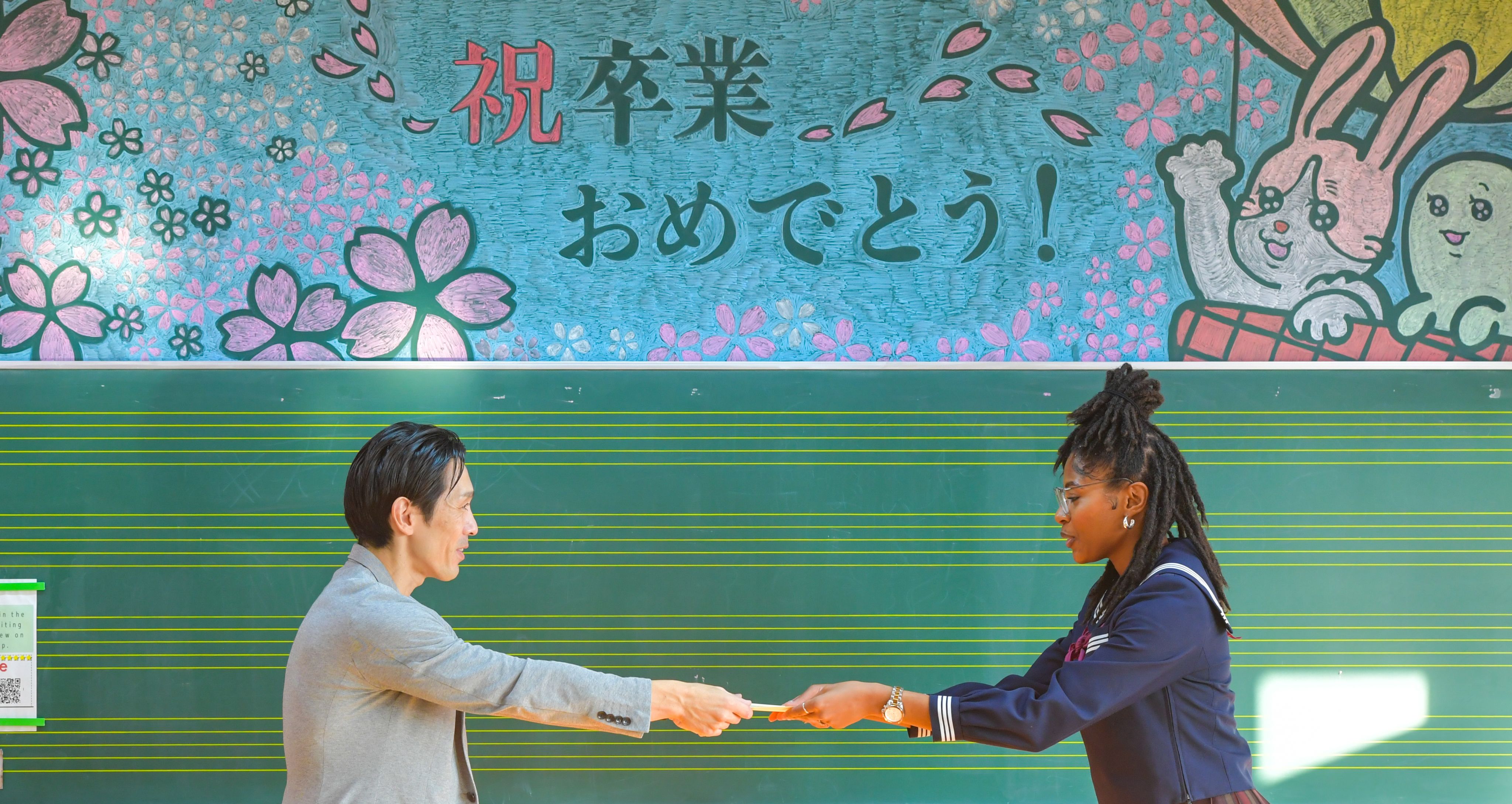

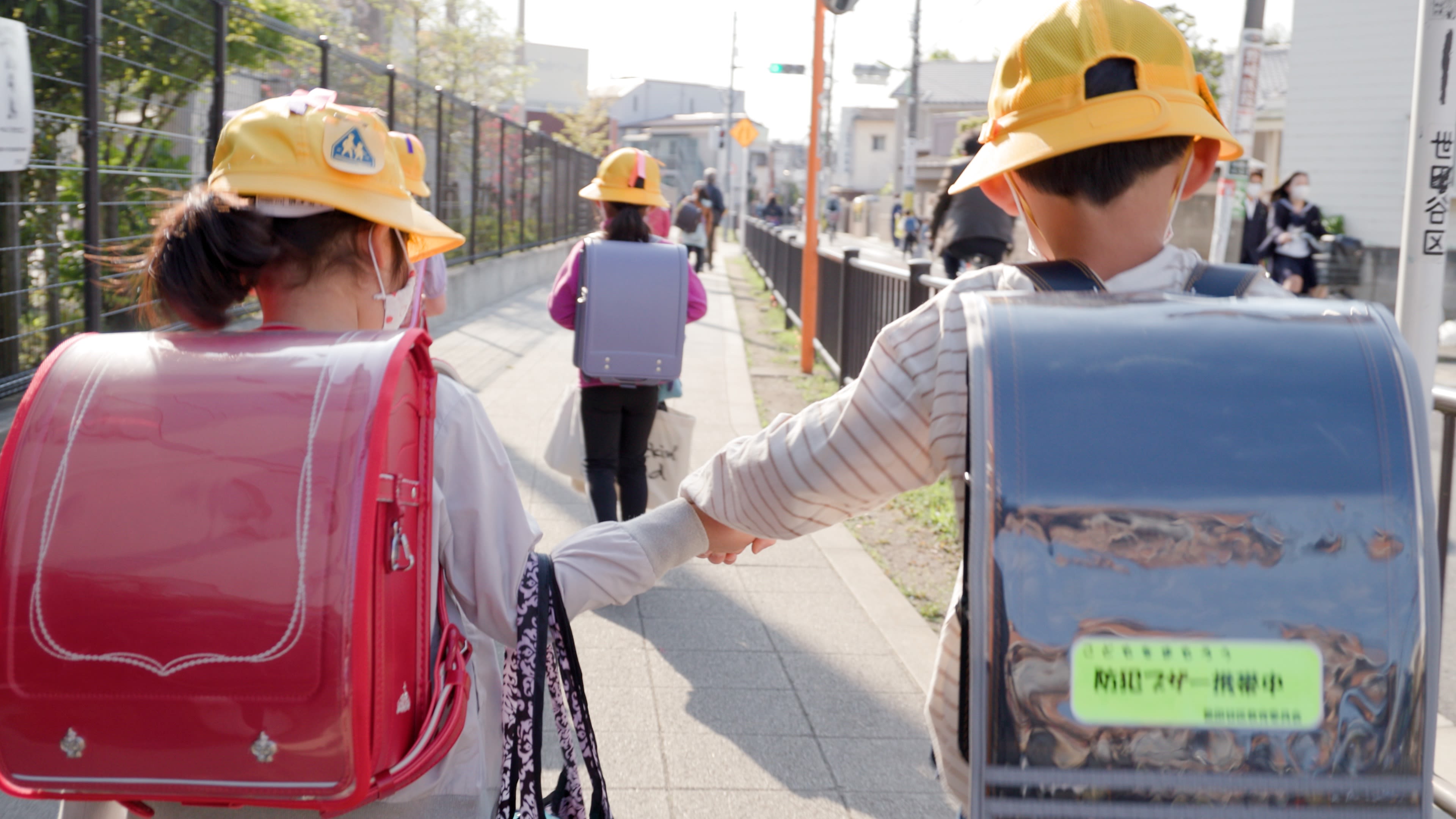
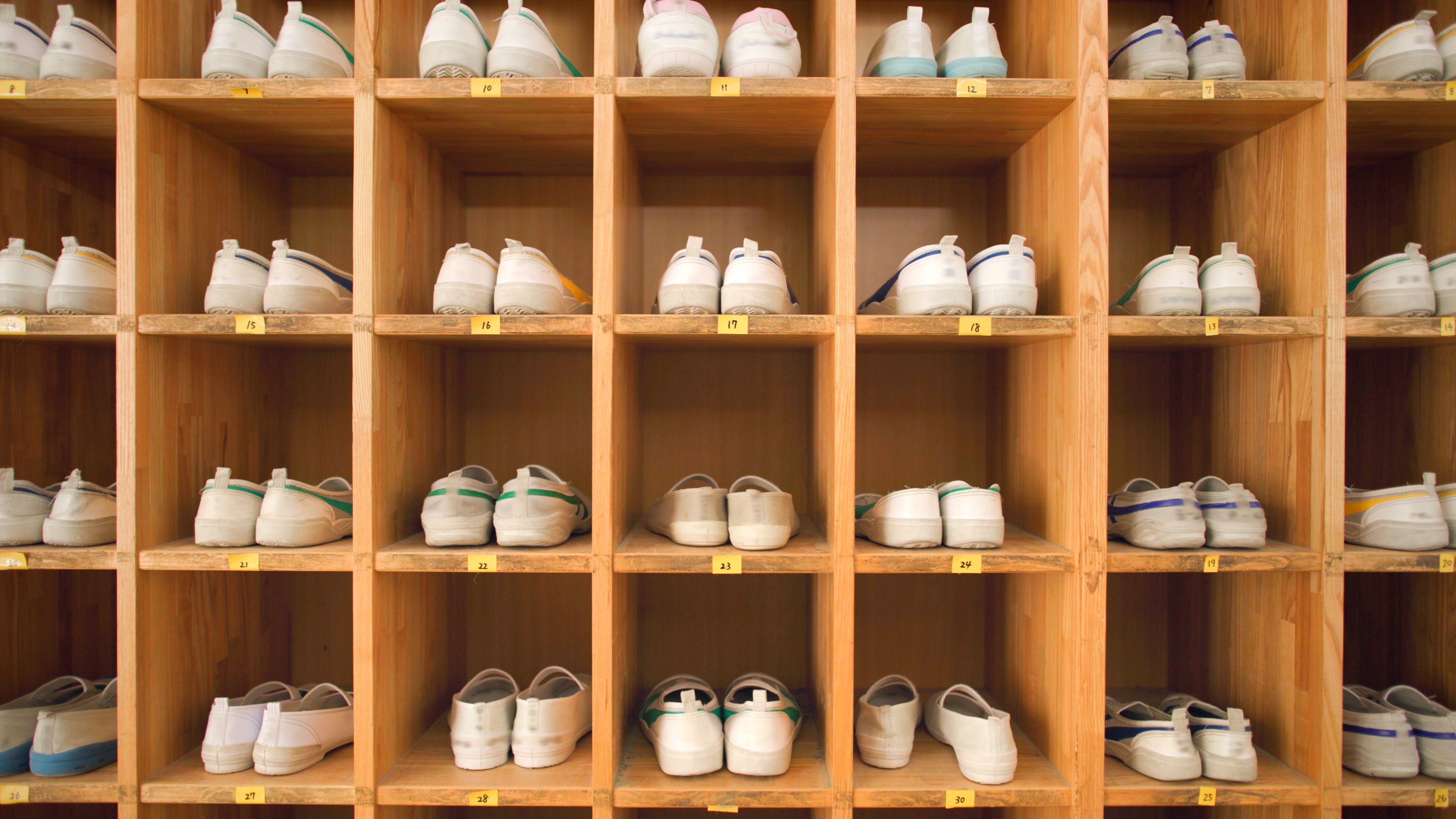
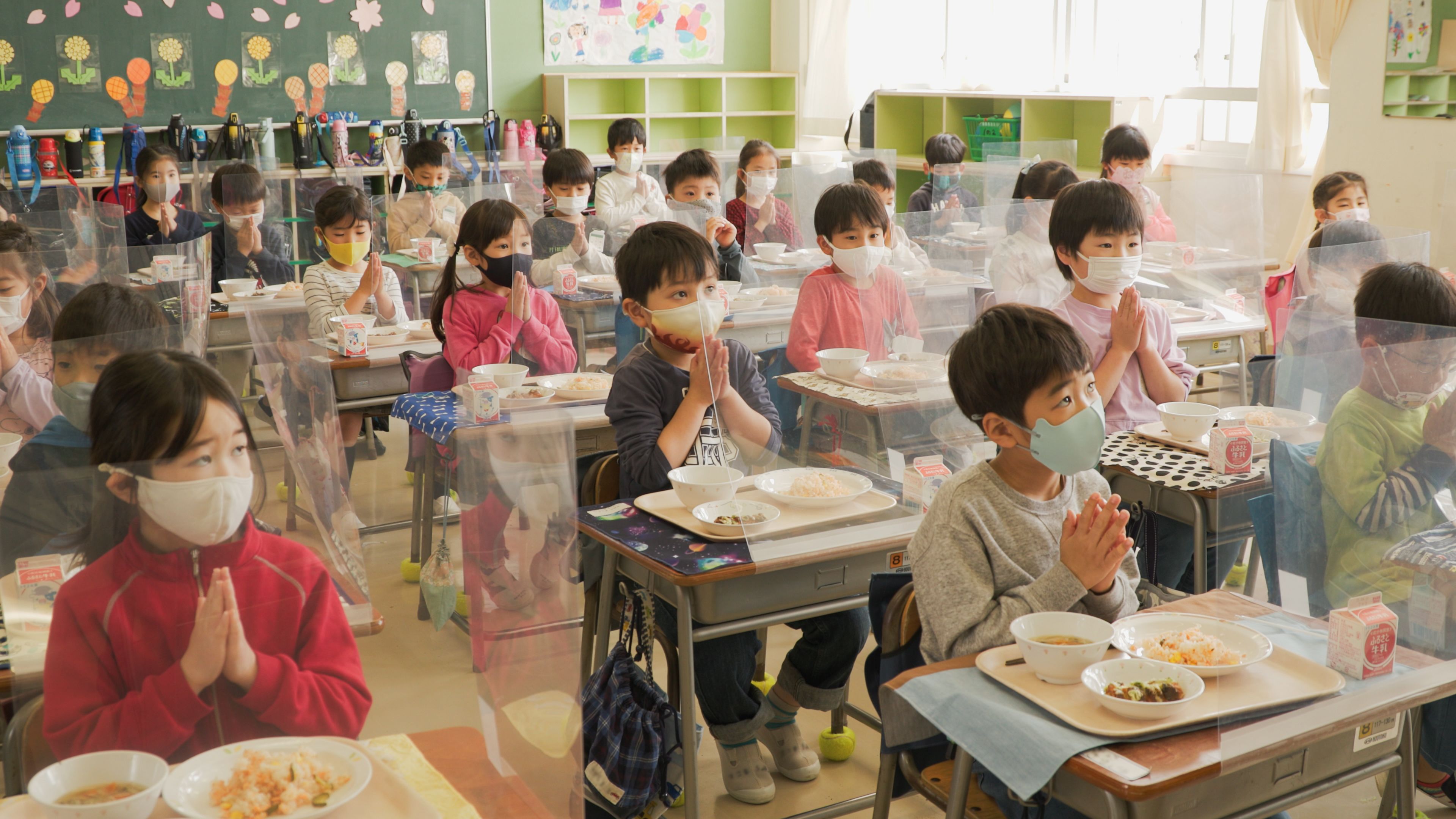
The Japanese school experience has also been given the documentary treatment by director Ema Ryan Yamazaki, who spent a year from April 2021 shooting the lives of students and teachers at a public elementary school in Tokyo in "The Making of a Japanese."
In the film, a shorter version of which has been shortlisted for the 2025 Academy Awards for Best Documentary Short Film, the audience is introduced to first and sixth graders as they struggle and ultimately triumph in their coronavirus pandemic-impacted endeavors.
© Cineric Creative / NHK / Pystymetsä / Point du Jour
© Cineric Creative / NHK / Pystymetsä / Point du Jour
"It is not a contained story about one school and one year, the story is much bigger. It's thinking about how what we can see in the film reflects on society as a whole, and examining Japan's microcosm through one school," Yamazaki said.
© Cineric Creative / NHK / Pystymetsä / Point du Jour
© Cineric Creative / NHK / Pystymetsä / Point du Jour
The title of her documentary references her own background as a child of a British father and a Japanese mother, an upbringing in which she regularly had to explain her identity to others. She was educated in a Japanese elementary school and believes many of her strengths were developed in her formative years there.
Yamazaki ended up spending roughly 4,000 hours in the school, capturing 700 hours of footage over the course of 150 days.
© Cineric Creative / NHK / Pystymetsä / Point du Jour
© Cineric Creative / NHK / Pystymetsä / Point du Jour
The film was officially released in Japan in December 2024, with some theaters providing English subtitles. It has been shown in over 20 countries from Greece to South Korea, France and Australia, with plans for future releases in Taiwan and Thailand.
Photo shows audience at a film showing in Egypt.
Photo shows audience at a film showing in Egypt.
The film was also successful in Finland, where it was shown for around four months and became one of the biggest documentary hits of the year. Education experts were invited to screenings an encouraged to use the film as an opportunity to reflect on how to improve their own system, according to Yamazaki.
Photo shows a film showing and discussion in Finland.
Photo shows a film showing and discussion in Finland.
In Japan, children are often allocated responsibilities around the school, from looking after the school pet to managing the broadcast system. Students are also asked to lead and make decisions among themselves in "gakkyukai" discussions.
In a Japanese elementary school, "you're given a role and you're responsible for that role as a contributing member of your group or your school," Yamazaki said. "Your identity is defined in relation to those around you."
While many aspects of the Japanese education system have been lauded abroad, the director concedes that some downsides make it a "double-edged sword."
"If you can only fit in if you're the same as everyone else, or you feel like you're defined by how you relate to a group, it's harder when you don't feel like you fit in or to try to do something different," she said.
That being said, Yamazaki reflected, "You learn who you are based on how you fit into the environment around you, the group around you, what your role is, and how you fit into that relationship."
"I think that's a great way to educate young children."
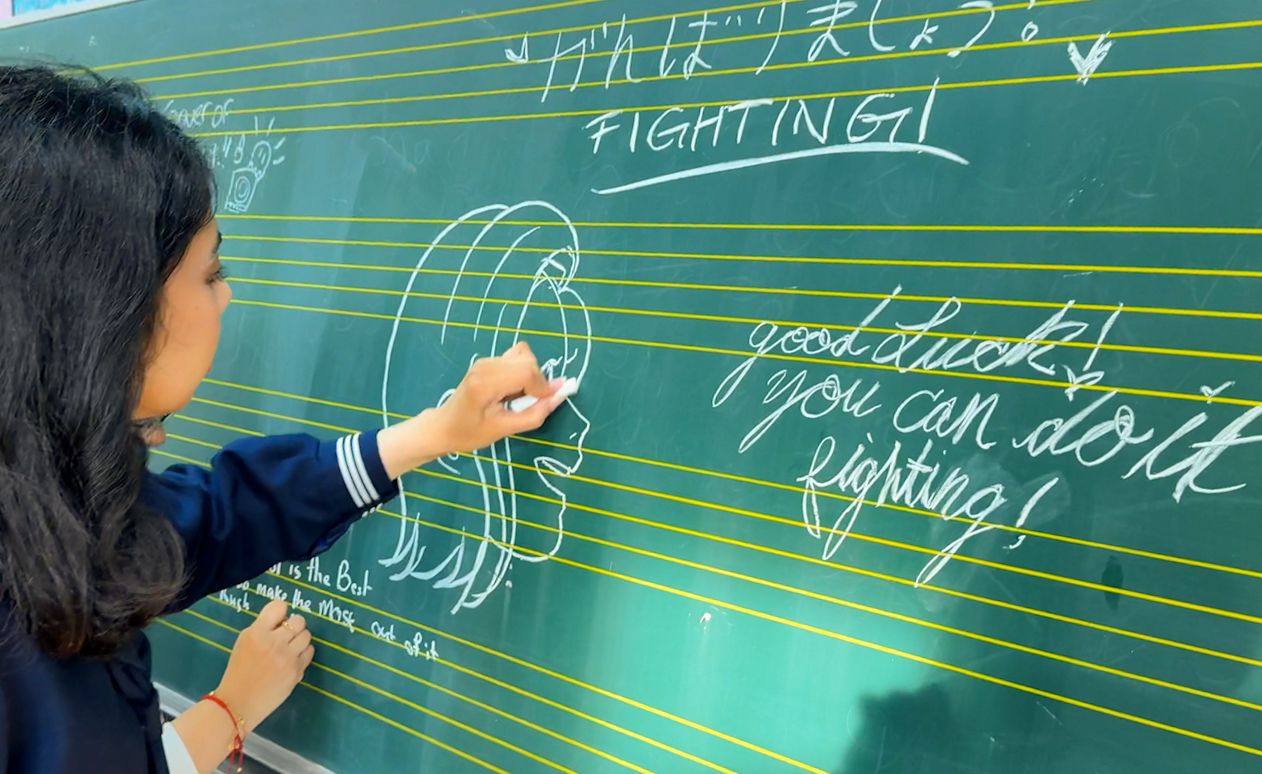
Text : Toma Mochizuki
Photo & Video : Yuki Murayama, Tom Shuttleworth
Editors: Joel Fitzpatrick, May Masangkay
Line producer : Yuki Murayama
Production support : Janice Tang, Gus Fielding, Kevin Chow
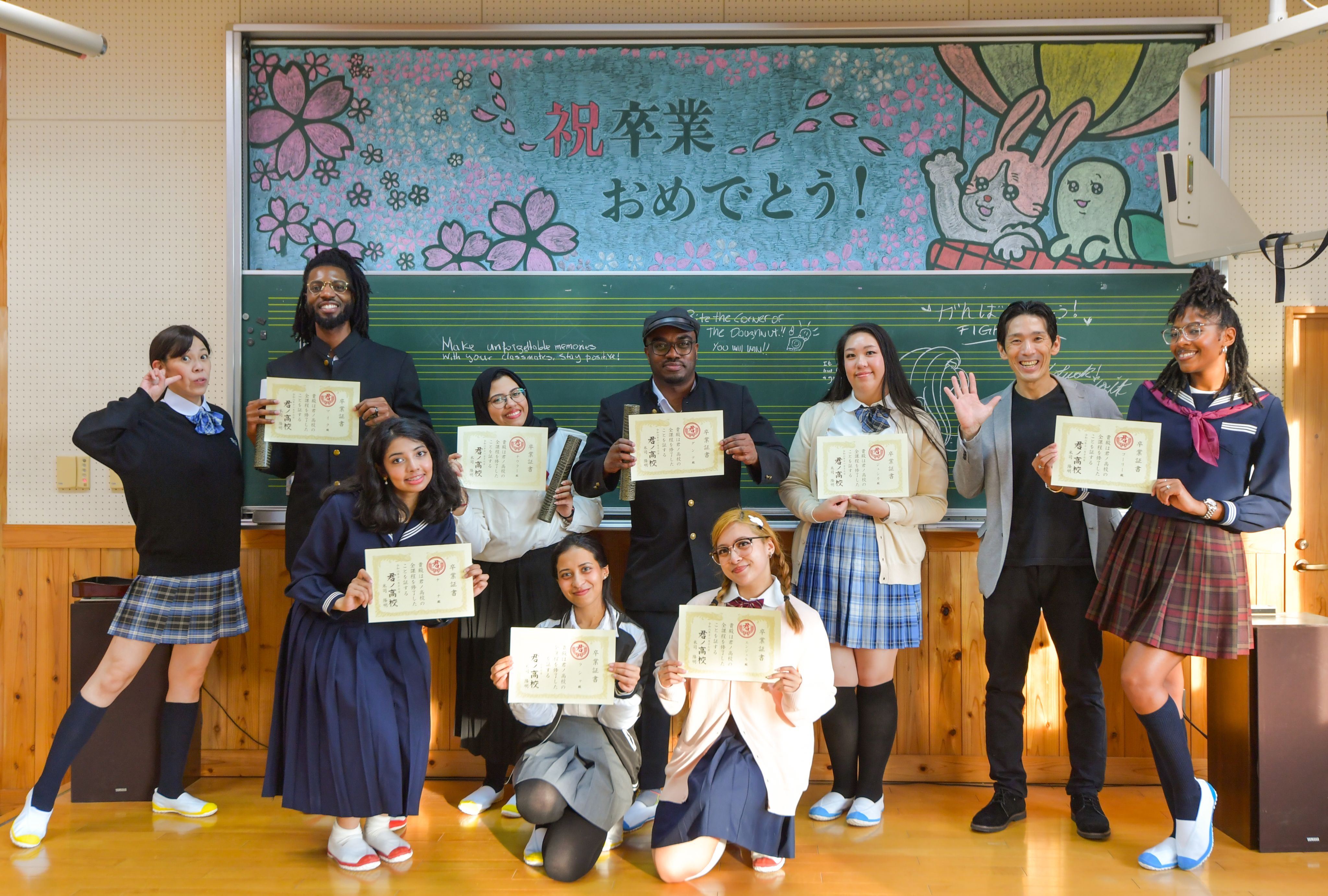
Other Spotlight Japan Stories
Kinugawa Onsen reversing "haikyo" image amid foreign visitor boom
On the banks of Kinugawa River, a row of abandoned, crumbling hotels stands like a relic of a forgotten past. A destination that once thrived as a hot spring resort during Japan's bubble economy era of the 1980s, many parts of Kinugawa Onsen have now fallen silent.
Foreign tourists showing appetite for Japan's art of food replicas
Hands-on lessons in the art of creating food replicas have caught on with foreign visitors keen to learn more about a distinctive Japanese craft that has evolved for over 100 years.
Waves for days fuel surf tourism at Fukushima beach town
It's a testament to the enduring appeal of surfing that despite facing the adversity of a tsunami and nuclear disaster a beach community in Fukushima is revitalizing the region through surf tourism.
K-pop's UNIS in Japan with new music, new chapter
The latest chapter in the story of Universe Ticket winners UNIS brought the Korean, Japanese, and Filipino K-pop group back to Japan in September to share their new single with fans.
The Company uses Google Analytics, an access analysis tool provided by Google. Google Analytics uses cookies to track use of the Service. (Client ID / IP address / Viewing page URL / Referrer / Device type / Operating system / Browser type / Language /Screen resolution) Users can prevent Google Analytics, as used by the Company, from tracking their use of the Service by downloading and installing the Google Analytics opt-out add-on provided by Google, and changing the add-on settings on their browser. (https://tools.google.com/dlpage/gaoptout) For more information about how Google handles collected data: Google Analytics Terms of Service (https://policies.google.com/technologies/cookies?hl=en#types-of-cookies) Google Privacy & Terms(https://policies.google.com/privacy)
© Kyodo News. All Rights Reserved. No reproduction or republication without written permission.

